8-26-2019
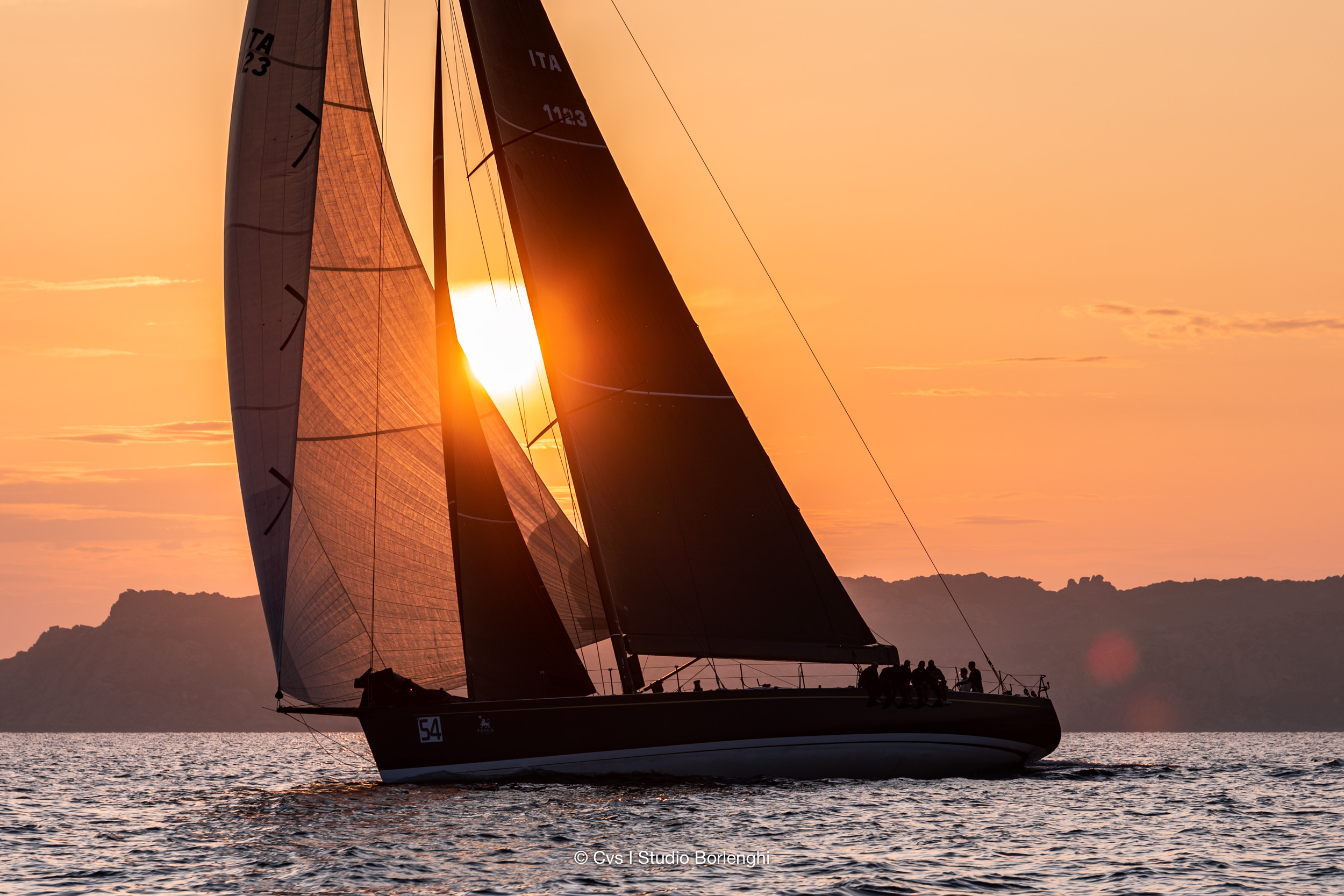
Monte-Carlo (August 24, 2019) – The 15th edition of the Palermo-Montecarlo marked the fifth and final event of the International Maxi Association’s Mediterranean Maxi Offshore Challenge 2018-2019 and fielded fifty-one boats this year.
Miguel Galuccio’s Reichel/Pugh 84’ maxi Vera (formerly My Song) was first to cross the finish line winning one of the Giuseppe Tasca d’Almerita Trophy. Vera’s crew, including Dutch Volvo Ocean Race legend Bouwe Bekking and Olympic champion Michele Regolo, completed nearly 500 miles of racecourse (on the direct route) in two days, 17 hours and 13 minutes — smashing the record set by Esimit Europa 2 in 2015. Esimit Europa 2 is a Reichel/Pugh-designed 100’ canting keel supermaxi, first launched as Alfa Romeo and is now the Australia-based Black Jack. (more…)
8-26-2019
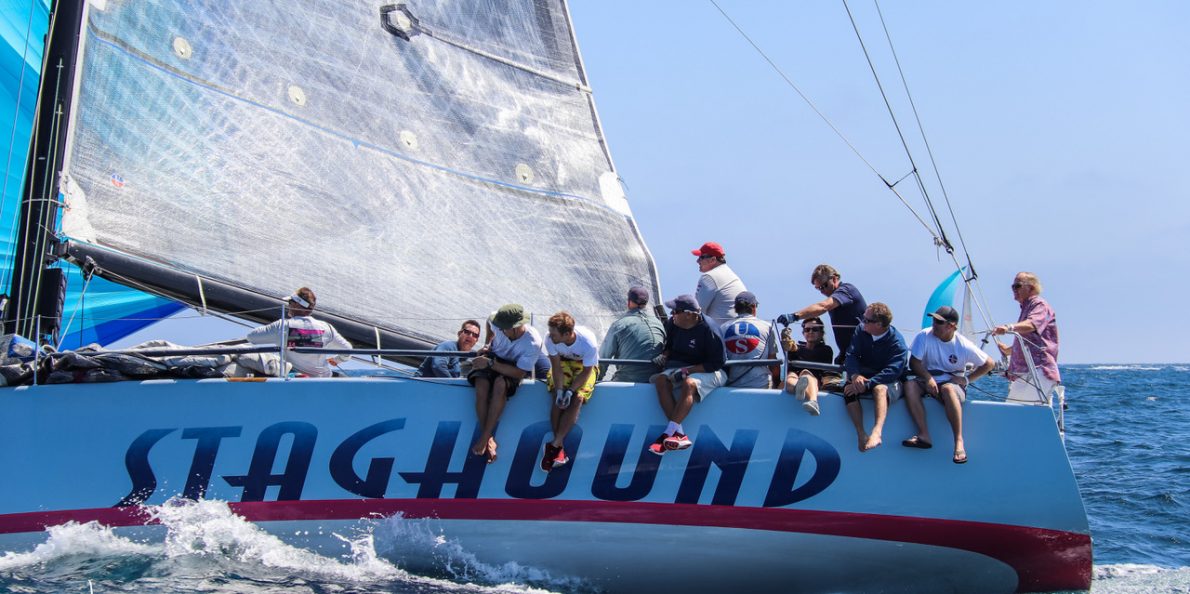
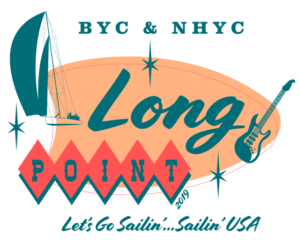 Newport Beach, CA (August 25, 2019) – Congratulations to Alec Oberschmidt and his team for the overall win (and B division win for the third year in a row) at the 2019 Long Point Race Week aboard their Reichel/Pugh-designed 50’ racer Staghound. David Clark’s ULDB 70 Grand Illusion with Reichel/Pugh-designed keel and rudder appendages was 2nd in ORR Division. Grand Illusion won the Transpac overall in 2015. (more…)
Newport Beach, CA (August 25, 2019) – Congratulations to Alec Oberschmidt and his team for the overall win (and B division win for the third year in a row) at the 2019 Long Point Race Week aboard their Reichel/Pugh-designed 50’ racer Staghound. David Clark’s ULDB 70 Grand Illusion with Reichel/Pugh-designed keel and rudder appendages was 2nd in ORR Division. Grand Illusion won the Transpac overall in 2015. (more…)
8-20-2019
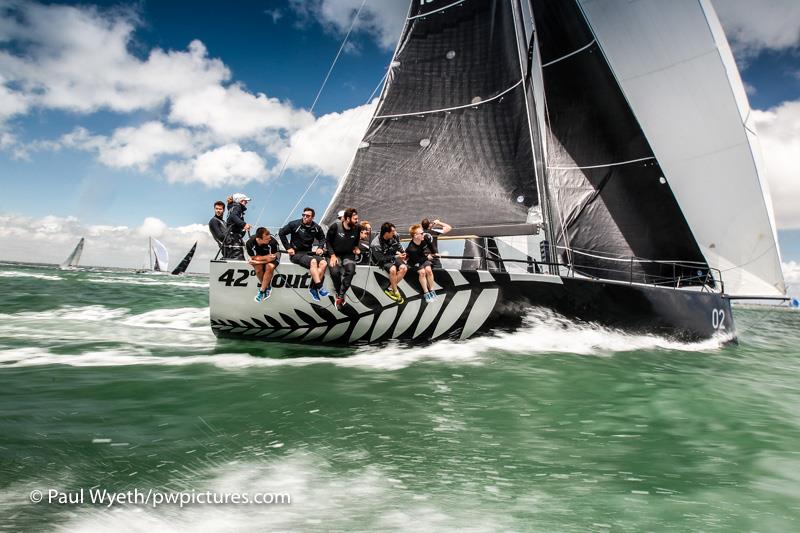
 Cowes, Isle of Wight (August 17, 2019) – Mark Rijkse’s Reichel/Pugh-designed GP42 42° South (ex-Seawonder 007) shone brightly at the 2019 COWES WEEK, scoring four bullets in six races to win Class IRC 0, winning the prestigious Brittania Cup and New York Yacht Club Challenge Cup in two of those races. (more…)
Cowes, Isle of Wight (August 17, 2019) – Mark Rijkse’s Reichel/Pugh-designed GP42 42° South (ex-Seawonder 007) shone brightly at the 2019 COWES WEEK, scoring four bullets in six races to win Class IRC 0, winning the prestigious Brittania Cup and New York Yacht Club Challenge Cup in two of those races. (more…)
7-12-2019
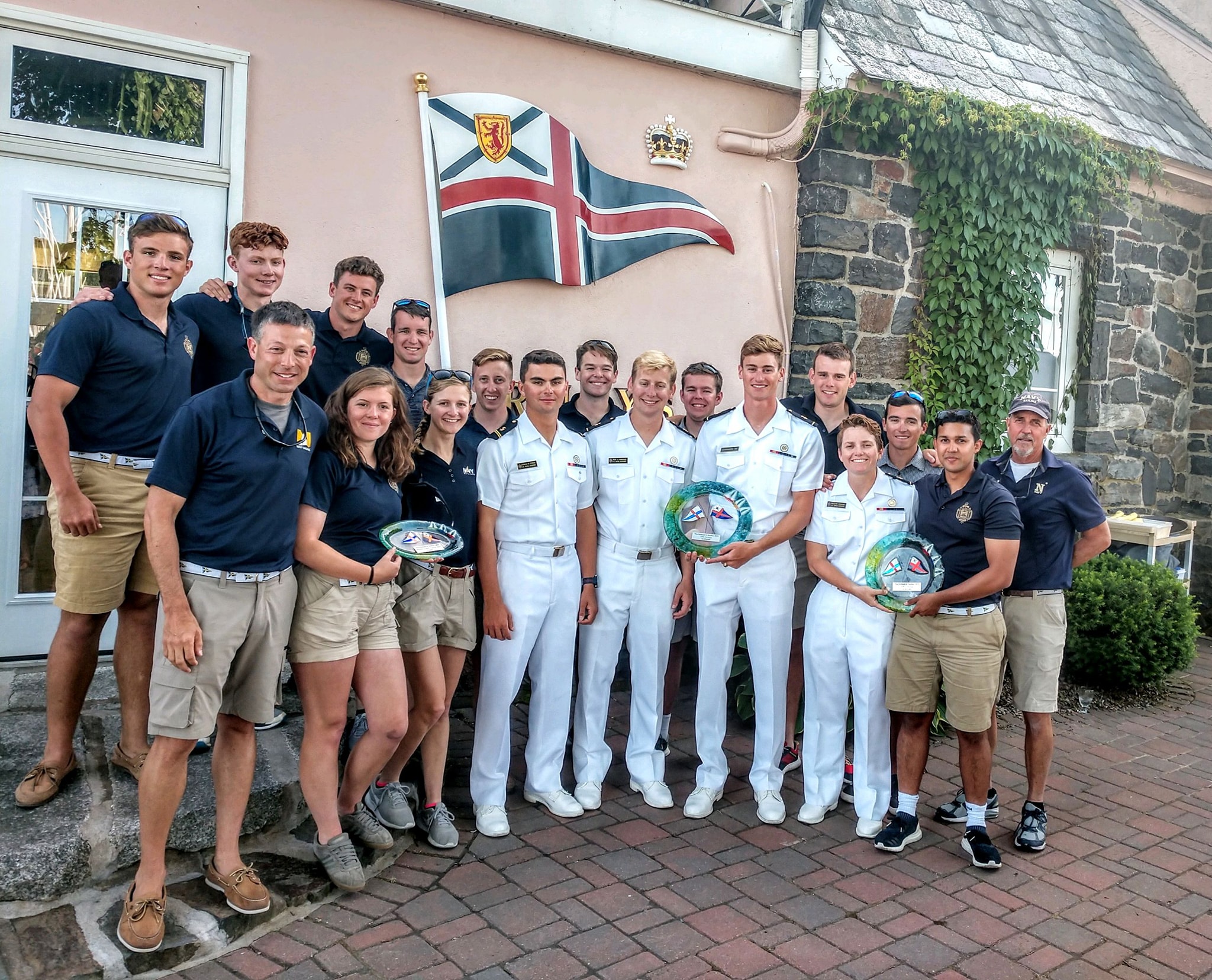
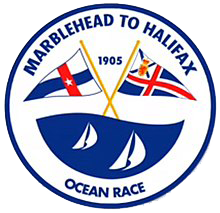 A piece of Dr. Skip Sheldon’s legacy lives on as his 66’ racer-cruiser Zaraffa continues to win with the grateful U.S. Naval Academy Varsity Offshore Sailing Team.
A piece of Dr. Skip Sheldon’s legacy lives on as his 66’ racer-cruiser Zaraffa continues to win with the grateful U.S. Naval Academy Varsity Offshore Sailing Team.
Sheldon, who began his sailing career as a student, commissioned Reichel/Pugh Design No. 96 Zaraffa as a dual-purpose racer-cruiser, built by New England Boatworks and launched in 1999. A rugged design, Sheldon never wanted the boat to be the cause of not finishing a race. Zaraffa competed in the 2001 Fastnet race winning class and taking 2nd overall. She raced the Newport-Bermuda four times, claiming the 2002 Lighthouse Trophy win on the crew’s second attempt. She was also first-to-finish with overall honors on the 2003 North Atlantic Challenge from Newport to Cuxhaven, Germany, and in 2011 Zaraffa was 1st Corrected IRC 3 in the Transatlantic Race. She has also raced the Sydney Hobart, Miami to Montego Bay, Round Gotland Race and the Middle Sea Race. In 2018, after a retrofit for the Transatlantic Race, the Sheldon family bestowed the USNA Sailing Team with the gift of Zaraffa for offshore training. (more…)
7-12-2019
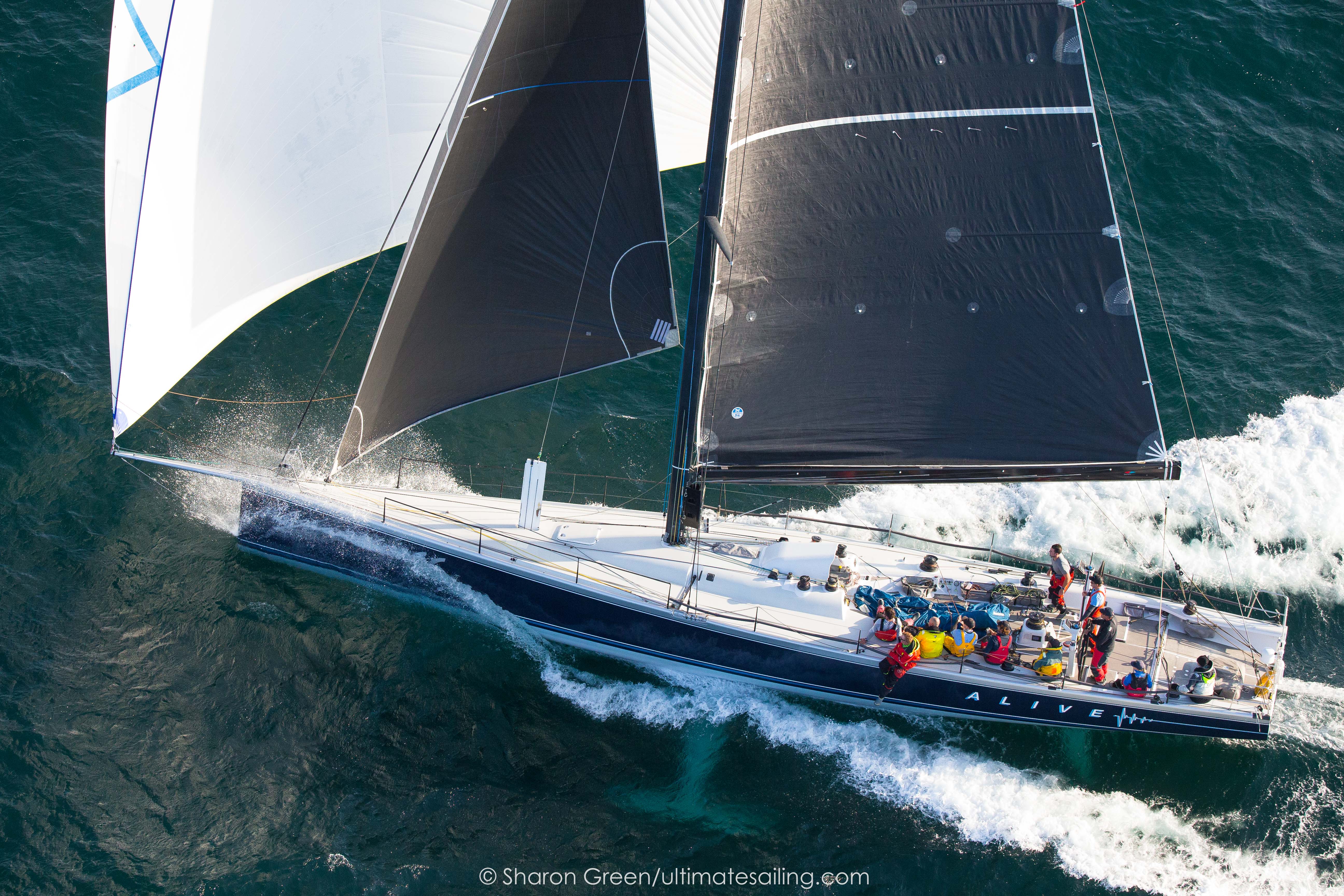
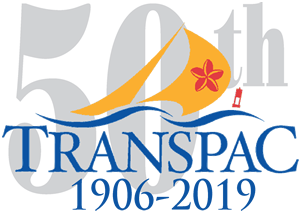 As the 50th Transpac kicks off this week Reichel/Pugh wishes all owners and crews a safe race, especially our very own Naval Architect and Structural Engineer David Oliver who is navigator aboard the 60’ Good Call.
As the 50th Transpac kicks off this week Reichel/Pugh wishes all owners and crews a safe race, especially our very own Naval Architect and Structural Engineer David Oliver who is navigator aboard the 60’ Good Call.
Reichel/Pugh racers to watch:
Alive – Design 162 – 66’ CBTF Racer (formerly Black Jack & Stark Raving Mad)
Grand Illusion (featuring Reichel/Pugh-designed keel and rudder appendages)
Lady Kanon – Design 177 – 45’ IRC Racer
Shadow II – Design 122 – TP52
Taxi Dancer – Design 39 – 70’ ULDB
Vitesse – Design 199.2 – Southern Cross 52’
Race Tracking
Event News
Photography
Phillip Turner’s Australian-based Alive Yachting team most notably won the 2018 Sydney-Hobart overall, and recently swept 2019 California Offshore races with back-to-back line honor wins in the SoCal 300 (Santa Barbara to San Diego), Coastal Cup (Monterey to Santa Barbara), Spinnaker Cup (San Francisco Bay to Monterey), and Newport-Ensenada Race.
HIGHLIGHTS OF REICHEL/PUGH TRANSPAC HISTORY
Reichel Pugh Maxi’s have held the Transpac Course Record for nearly two decades, from 1999 (Roy Disney’s 75’ Pyewacket Maxi Sled) until 2017 (broken by Comanche – setting the new Merlin trophy elapsed time record at 5 days 01:55:26). Until 2017, the record had been broken 4 times since 1999 – always by Reichel/Pugh designed yachts. R/P yachts have won the Barn Door Trophy 7 out of 10 editions of the race since 1999.
Reichel/Pugh’s original sled design, the 70’ Taxi Dancer took 1st place in Class A in the 1989 Transpac and second overall, this was during the heyday of the California Sleds when Class A of the 1989 race featured 19 Sleds. Thirty years later, Taxi Dancer is still racing!
2015 – WILD OATS XI – Roy Pat Disney’s and Bob Oatley’s 100’ Canting Keel SuperMaxi Wild Oats XI had the fastest elapsed time of 6d 10h 37m 2s to win the 2015 Merlin Trophy and take first in Division 1 at the Transpac’s Diamond Head finish line. Wild Oats XI is a 100-foot custom design famous for its record nine elapsed time victories in thirteen years (2005-2008, 2018) and three overall fleet wins (2014, 2012 & 2005) in the Sydney-Hobart race.
2015 – GRAND ILLUSION – Ed & James McDowell’s Santa Cruz 70 Grand Illusion was the overall winner. She was designed by Bill Lee and features Reichel/Pugh-designed keel and rudder appendages. Grand Illusion has now equaled the record for most overall Transpac wins, joining the 88′ Lurline which won the first two races in 1906 and 1908, and again in 1912. However, Grand Illusion holds the status alone for winning overall three times under the same Owner/Skipper, Ed & James McDowell.
2013 – RP74 WIZARD – David and Peter Askew’s 74’ Reichel/Pugh-designed and New England Boatworks-built Mini-Maxi WIZARD (formerly Bella Mente) finished ‘first’ in the 2013 Transpac Race winning the unique Transpacific Yacht Club’s Perpetual Trophy – a 3.5’ x 4’ plaque of hand carved Hawaiian Koa Wood – better known as the ‘Barn Door.’ This trophy is traditionally awarded to the fixed keel mono-hull employing no stored energy with the fastest elapsed time. Wizard’s elapsed time was 7 days, 7 hours, 53 minutes, 46 seconds, which was 12 hours and 13 minutes slower than Bella Mente’s Barn Door record run of 6 days 19 hours 39 minutes 28 seconds set in 2011.
2011 – RP74 BELLA MENTE – Hap Fauth’s 74’ Mini Maxi BELLA MENTE set a new fixed keel course record of 6 days 19 hours 39 minutes 28 seconds with an average speed of 13.6 knots.
2011 – RPTP52 PATCHES – Jorge Ripsteins R/P-designed TP52 PATCHES won Division 2 followed by R/P designs CRIMINAL MISCHIEF 45’ and VINCITORE 52’.
2011 – GRAND ILLUSION – Ed and James McDowell’s Santa Cruz 70 featuring R/P-designed appendages took first in division and first in fleet overall on corrected time.
2009 – RP100 ALFA ROMEO II – 1st to Finish (Lending Tree got a DNS!) 5 days 14 hours 36m 20s) (Moveable Ballast & Powered Winches Course Record). N. Crichton’s Alfa Romeo II, sailing in the “unlimited” class, was not eligible for the traditional “Barn Door” trophy, but instead was the inaugural winner of a new trophy dedicated by Trisha Steele, called the “Merlin Trophy”. On July 7, 2009, ALFA ROMEO II beat the MORNING GLORY record for best day’s run set in the 2005 race, by sailing 399nm in 24 hours. The next two days she broke her own best-day record by sailing 420nm and 431nm.
2005 – RP86 MORNING GLORY – 1st to Finish (SET NEW RECORD 6 days, 16 hours, 4 minutes, and 11 seconds to win “the Barn Door” trophy) (Moveable Ballast Course Record) – H. Plattner
2005 – RP52 ROSEBUD – 1st Class & 1st Fleet Corrected Overall – R. Sturgeon
2003 – RP77 PEGASUS – 1st to Finish Barn Door Trophy Winner – P. Kahn
2001 – RP75 PEGASUS – 1st to Finish Barn Door Trophy Winner, 2nd Fleet Overall Corrected – P. Kahn
1999 – RP73 PYEWACKET – 1st to Finish Barn Door Trophy Winner (SET NEW RECORD 7 days, 11 hours, 41 minutes, and 27 seconds Ending Merlin’s 20-year record) (Fixed Ballast Course Record) 2nd Fleet Overall Corrected – R. Disney
1995 – RP66 EXILE – 1st Place Class Winner – J. Warwick Miller
1989 – RP70 TAXI DANCER – 1st Place Class Winner (19 Sleds competing), 2nd Place Fleet Overall – M. Rousse
For more information on the yachts contact: [email protected]
ABOUT THE TRANSPAC
First organized by the Transpacific Yacht Club in 1906, the Transpacific Yacht Race or Transpac is an offshore sailing race from Point Fermin in Los Angeles to Diamond Head, just east of Honolulu, a distance of 2,225 nm. This is among the world’s great ocean races, and biennially attracts some of the world’s fastest sailing yachts, some of its most talented offshore racing sailors, and a wide variety of offshore sailing adventurers.
photography courtesy of Sharon Green/Ultimate Sailing
 Porto Cervo (June 8, 2019) – The 12th edition of the Loro Piana Superyacht Regatta was organized by the Yacht Club Costa Smeralda in the waters of Porto Cervo, Sardinia and hosted 20 boats ranging from 25 to 52 metres in length. Reichel/Pugh-designed 100’ Magic Carpet3, owned by YCCS member Sir Lindsay Owen-Jones, won Class “A” ahead of the 33-metre Inoui and the Wally 107 Open Season with a perfect scoreline across all three races. The Silver Jubilee Cup, assigned to the top yacht over 30 metres with an interior cruising set-up and in the division with the most competitors, also went to the WallyCento Magic Carpet3. Jim Pugh was apart of the racing team.
Porto Cervo (June 8, 2019) – The 12th edition of the Loro Piana Superyacht Regatta was organized by the Yacht Club Costa Smeralda in the waters of Porto Cervo, Sardinia and hosted 20 boats ranging from 25 to 52 metres in length. Reichel/Pugh-designed 100’ Magic Carpet3, owned by YCCS member Sir Lindsay Owen-Jones, won Class “A” ahead of the 33-metre Inoui and the Wally 107 Open Season with a perfect scoreline across all three races. The Silver Jubilee Cup, assigned to the top yacht over 30 metres with an interior cruising set-up and in the division with the most competitors, also went to the WallyCento Magic Carpet3. Jim Pugh was apart of the racing team.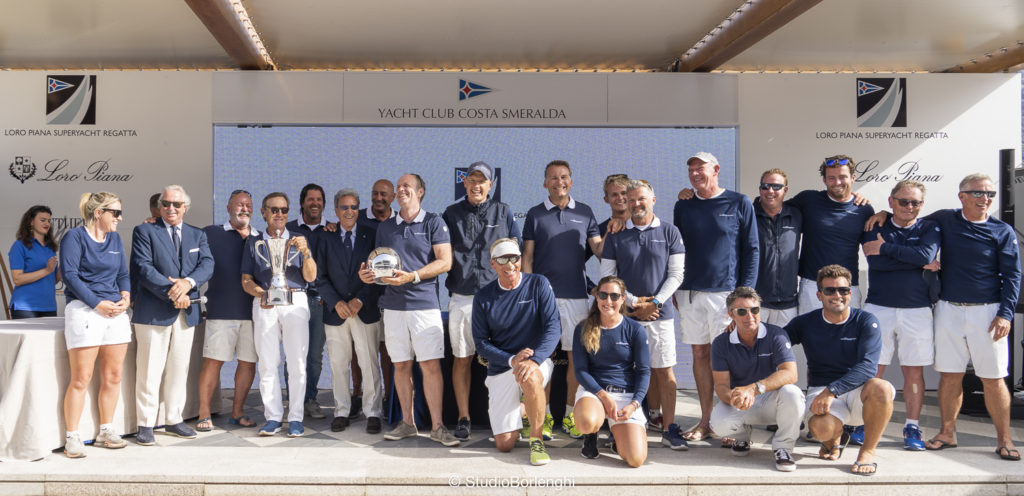 (more…)
(more…)
6-2-2019

San Diego, California (June 2, 2019) – Reichel/Pugh 66’ Canting Keel Mini Maxi ALIVE (formerly Black Jack & Stark Raving Mad) was first to finish (correcting to 7th) in the 5th annual SoCal 300 (300nm), following back-to-back line honor wins in the Spinnaker Cup (San Francisco Bay to Monterey), Coastal Cup (Monterey to Santa Barbara) and Newport-Ensenada. Alive also set a new course record for the 200nm Coastal Cup of 13h 48m 28s. Congratulations to owner Phillip Turner, skipper Duncan Hine and the entire Australian-based Alive Yachting team, who most notably won the 2018 Sydney-Hobart overall. The three-part CA Offshore Race Week now complete, the Alive team is taking on the competitive 17-boat Division 1 in the Transpac Race starting July 10th. (more…)
4-28-2019
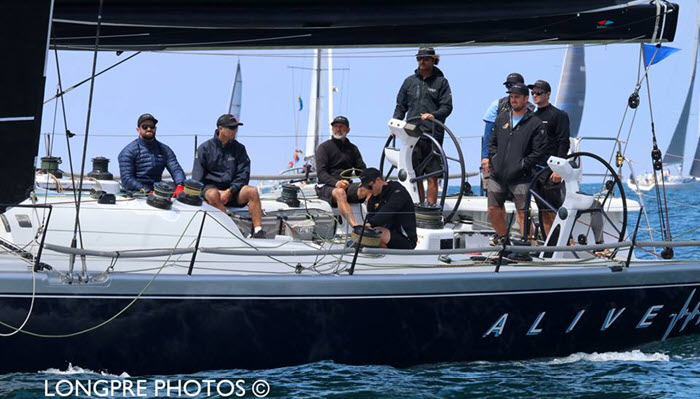
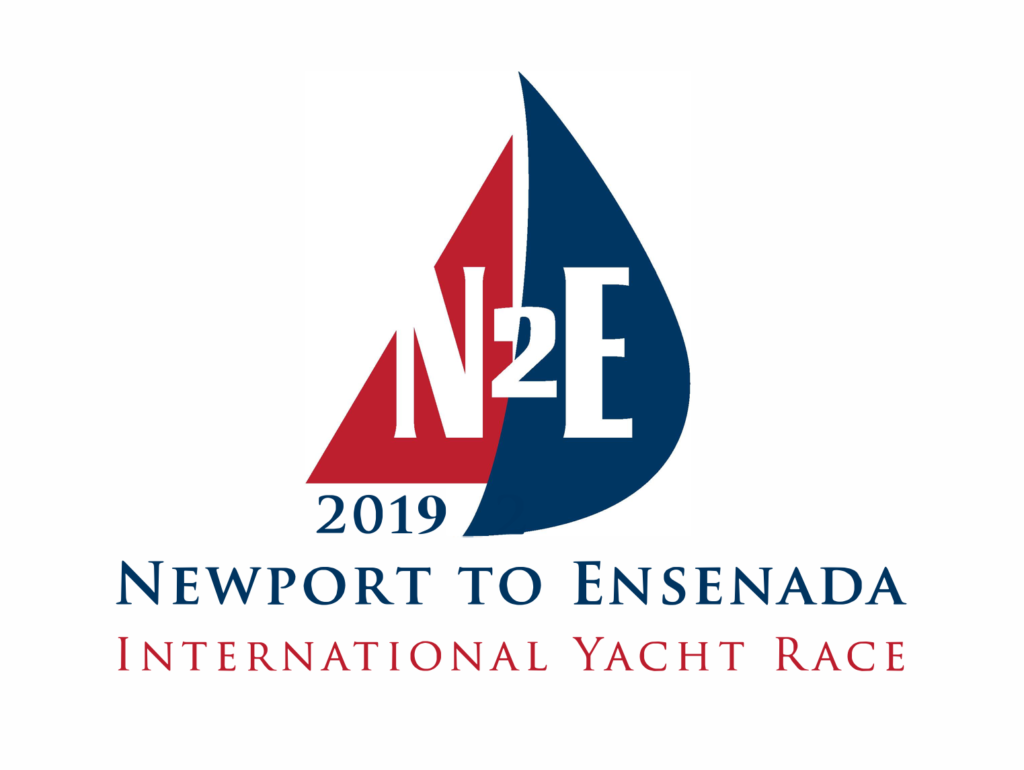 Ensenada, Mexico (April 28, 2019) – Congratulations to all competitors in the 72nd annual Newport to Ensenada (125nm). On the heels of its 2018 Sydney-Hobart victory, the Australian-based Reichel/Pugh 66’ Canting Keel Mini Maxi ALIVE (formerly Black Jack & Stark Raving Mad) earned the NOSA Trophy for overall best elapsed time, the Amigo Trophy awarded to a first-time skipper and the Lahaina Yacht Club Trophy for best elapsed time all PHRF. Congratulations to owner Phillip Turner, skipper Duncan Hine and the entire Alive Yachting team. (more…)
Ensenada, Mexico (April 28, 2019) – Congratulations to all competitors in the 72nd annual Newport to Ensenada (125nm). On the heels of its 2018 Sydney-Hobart victory, the Australian-based Reichel/Pugh 66’ Canting Keel Mini Maxi ALIVE (formerly Black Jack & Stark Raving Mad) earned the NOSA Trophy for overall best elapsed time, the Amigo Trophy awarded to a first-time skipper and the Lahaina Yacht Club Trophy for best elapsed time all PHRF. Congratulations to owner Phillip Turner, skipper Duncan Hine and the entire Alive Yachting team. (more…)
4-21-2019
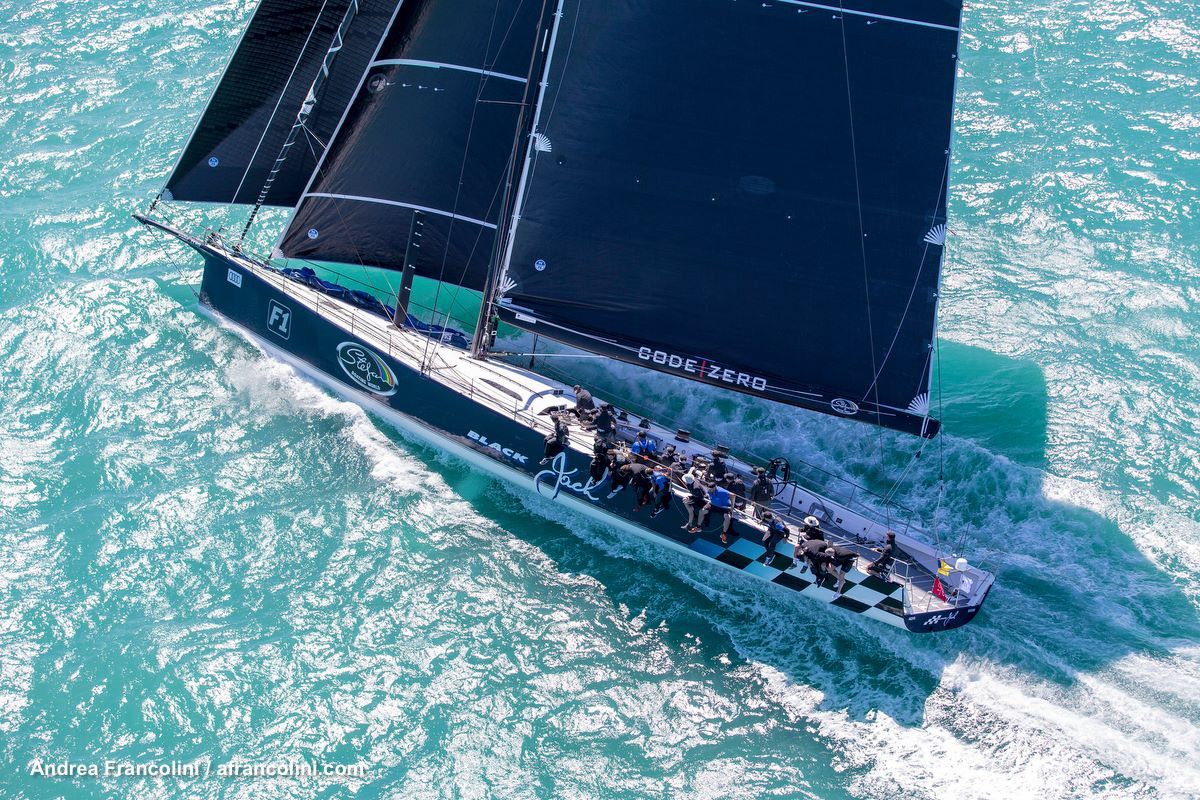
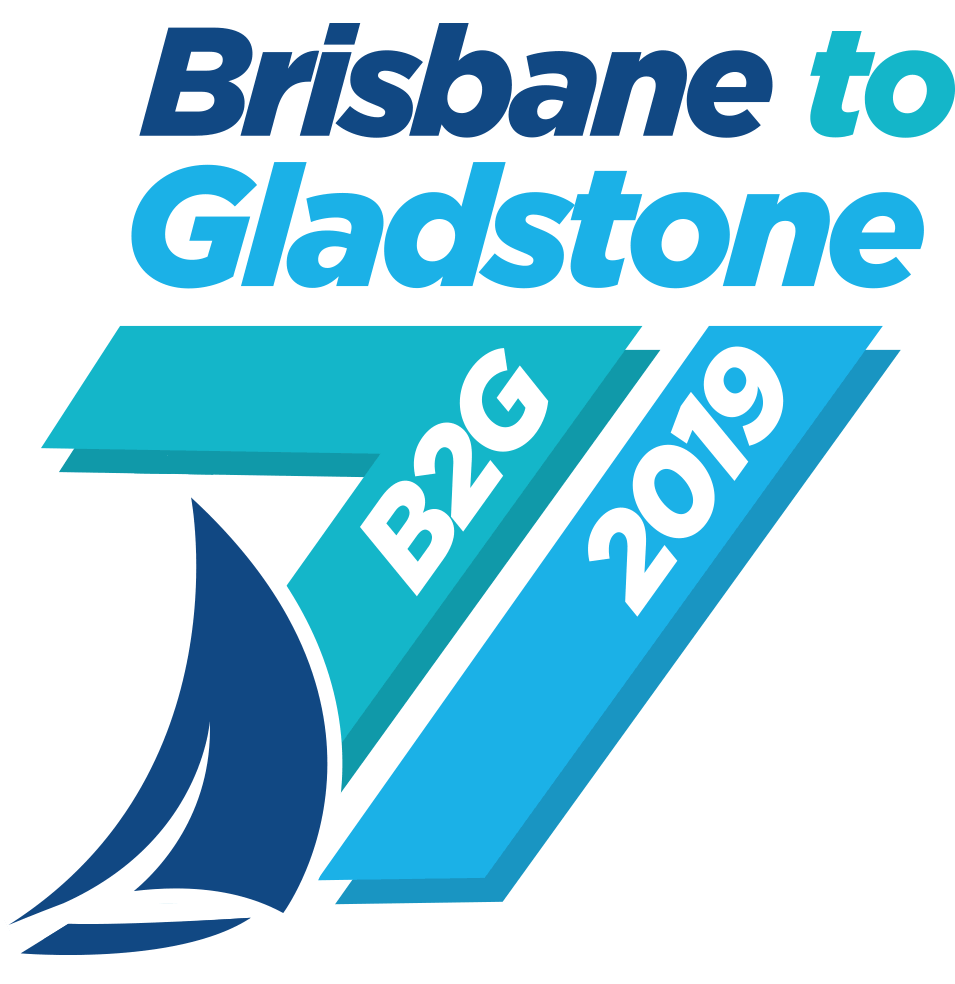 RP100 Black Jack is Winner of 2019 Brisbane to Gladstone Line Honors and Four Cities Cup for best performing yacht.
RP100 Black Jack is Winner of 2019 Brisbane to Gladstone Line Honors and Four Cities Cup for best performing yacht.
Queensland, Australia (April 20, 2019) – 100’ SuperMaxi Black Jack took line honors in the 71st Brisbane to Gladstone with a time of 16 hours, 56 minutes and 33 seconds—just 2 minutes and 36 seconds outside the 14-year record it broke last year. It was the sixth consecutive Brisbane to Gladstone line-honors victory for last year’s runner-up in the Sydney to Hobart and it marked eight wins for Black Jack’s owner Peter Harburg since 2009. (more…)
4-21-2019
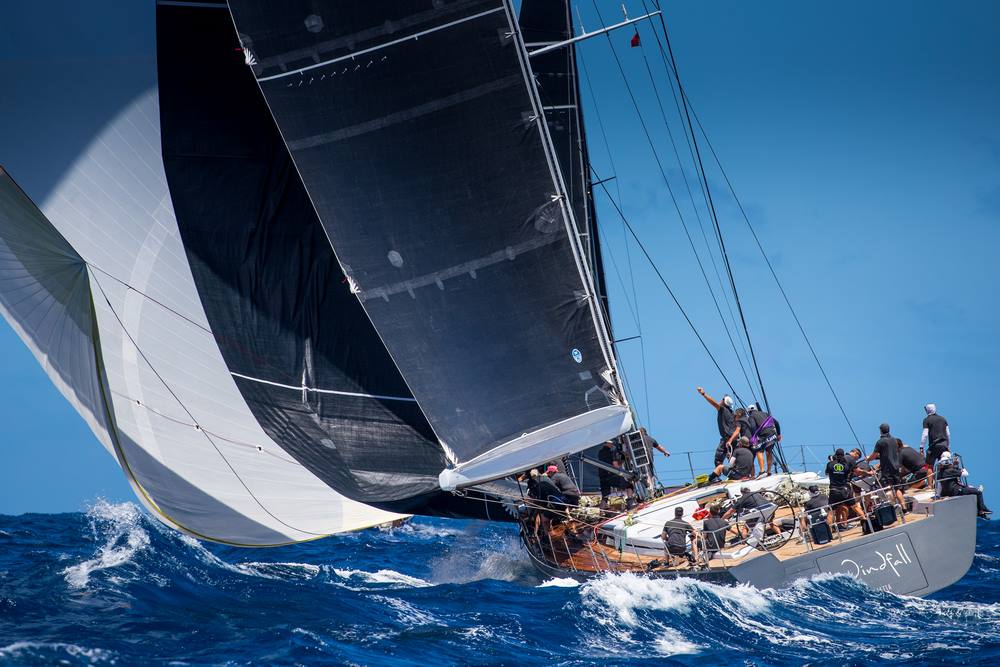
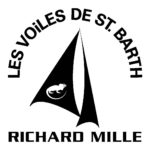 St. Barths (April 21, 2019) — Launched in 2010, Les Voiles de St. Barth is an event created specifically to keep the long, colorful history of racing on the island vibrant — building on Loulou’s Regatta back in the 1970’s with its 100 sailboats to the Transat AG2R, the Route du Rose, and the St Barth Bucket Regatta. The 2019 regatta marked the 10th anniversary and fielded scores of teams across nine classes, despite the remaining traces of hurricane Irma, which ravaged the island in September 2017.
St. Barths (April 21, 2019) — Launched in 2010, Les Voiles de St. Barth is an event created specifically to keep the long, colorful history of racing on the island vibrant — building on Loulou’s Regatta back in the 1970’s with its 100 sailboats to the Transat AG2R, the Route du Rose, and the St Barth Bucket Regatta. The 2019 regatta marked the 10th anniversary and fielded scores of teams across nine classes, despite the remaining traces of hurricane Irma, which ravaged the island in September 2017.
Dominating the Maxi Class 2 for the third year was Windfall’s Michael “Mick” Cotter, who humbly attributes much of their success to luck, however this was Mick’s seventh Les Voiles. The Reichel/Pugh-designed production 94’ Windfall was built by Southern Wind, with interiors by Nauta Yachts, Milan and launched in 2013. Results (more…)
4-14-2019
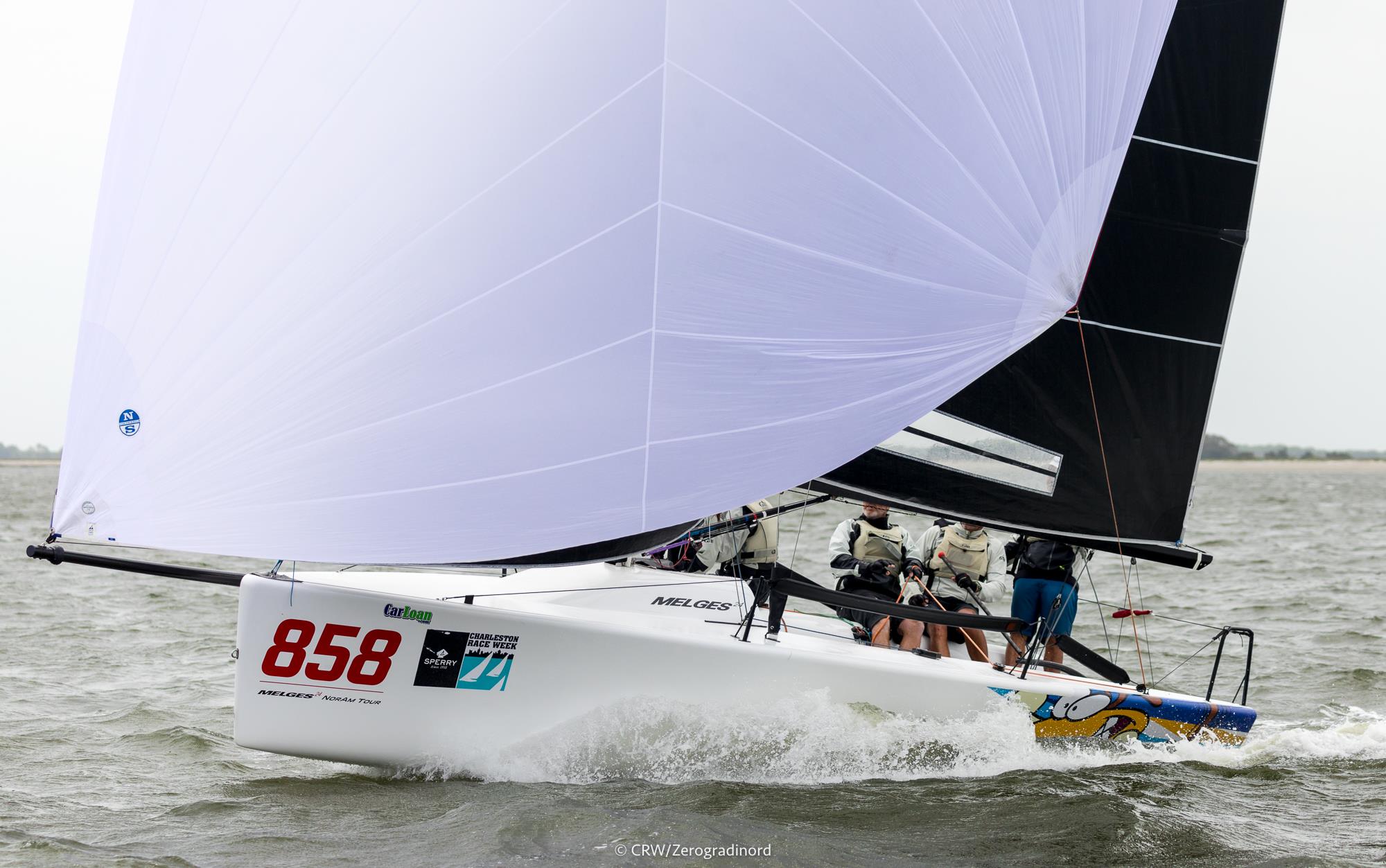
Travis Weisleder and Lucky Dog/Gill Race Team are Sperry Charleston Race Week 2019 Champions!
Charleston, South Carolina (April 14, 2019) – Skipper Travis Weisleder and his Lucky Dog/Gill Race Team clinched the win in the Melges 24 class at the 2019 Sperry Charleston Race Week, which concluded under strong winds with very tight racing. The event fielded 266 entries, 37 of them Melges 24s, and Weisleder was further rewarded with the perpetual trophy — the Charleston Race Week Cup for best overall performance by a one-design entry.
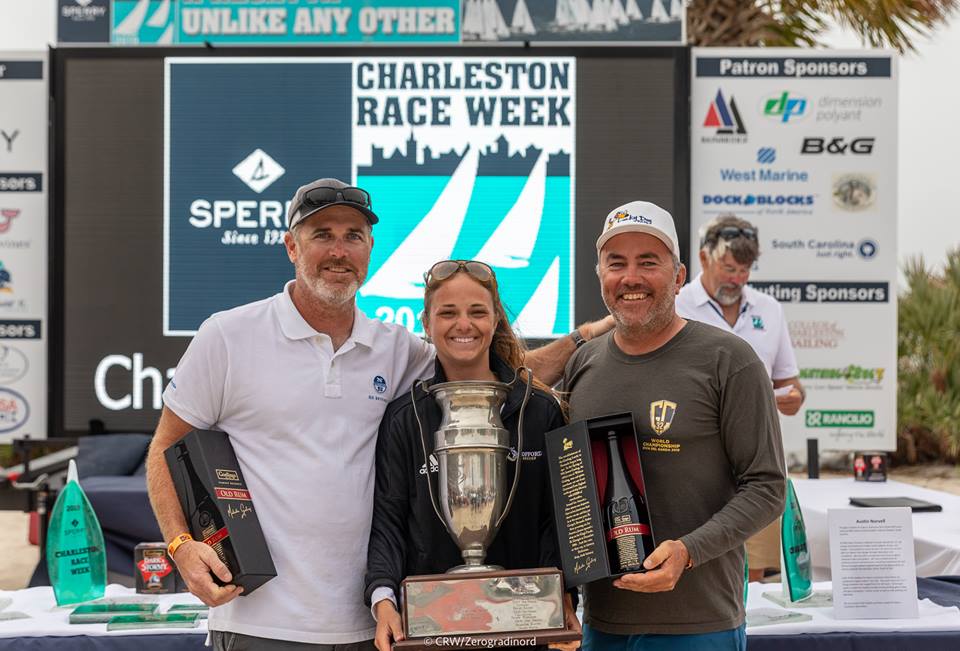 (more…)
(more…)
The winner of the 2019 Melges 20 World Championship is Alessandro Rombelli and the STIG team of Francesco Bruni, Giorgio Tortarolo, and Tea Faoro!
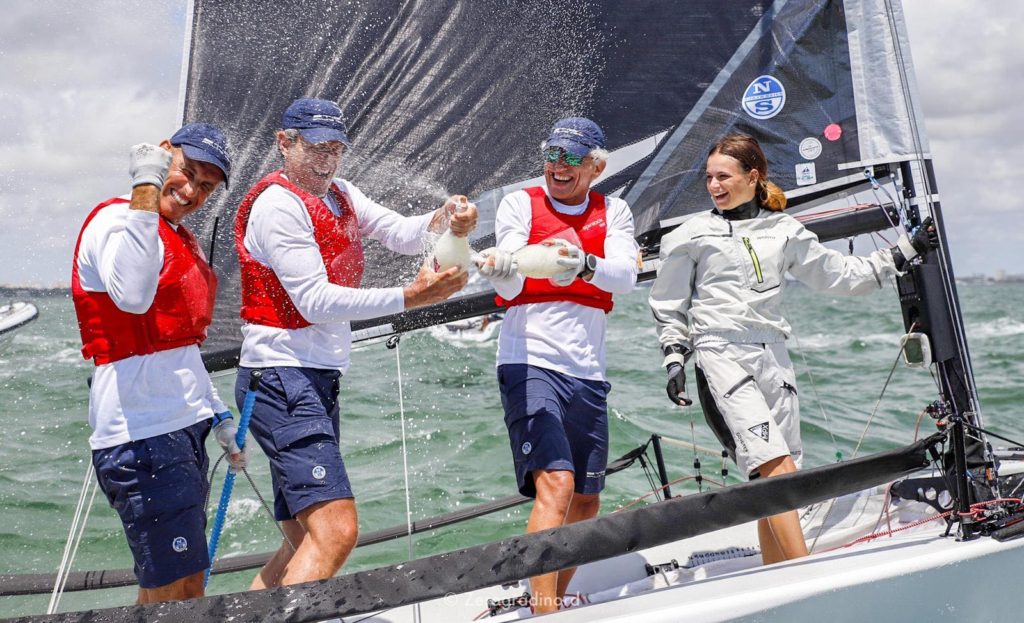
Reichel/Pugh sends best wishes to all competitors at the 2019 Melges 20 Worlds.
MIAMI (April 7, 2019) — Twenty-two teams representing nine countries sailed the 2019 Melges 20 World Championship held April 4-7 hosted by the Coconut Grove Sailing Club in Miami, Florida on Biscayne Bay. Alessandro Rombelli and the Italian STIG team of Francesco Bruni, Giorgio Tortarolo, and Tea Faoro can call themselves world champions! In the all-amatuer Corinthian division, the World title goes to Rhonda Joyce and the GRINNING STREAK team of Jeremy Edwards and Tony Bowman. (more…)
3-25-2019
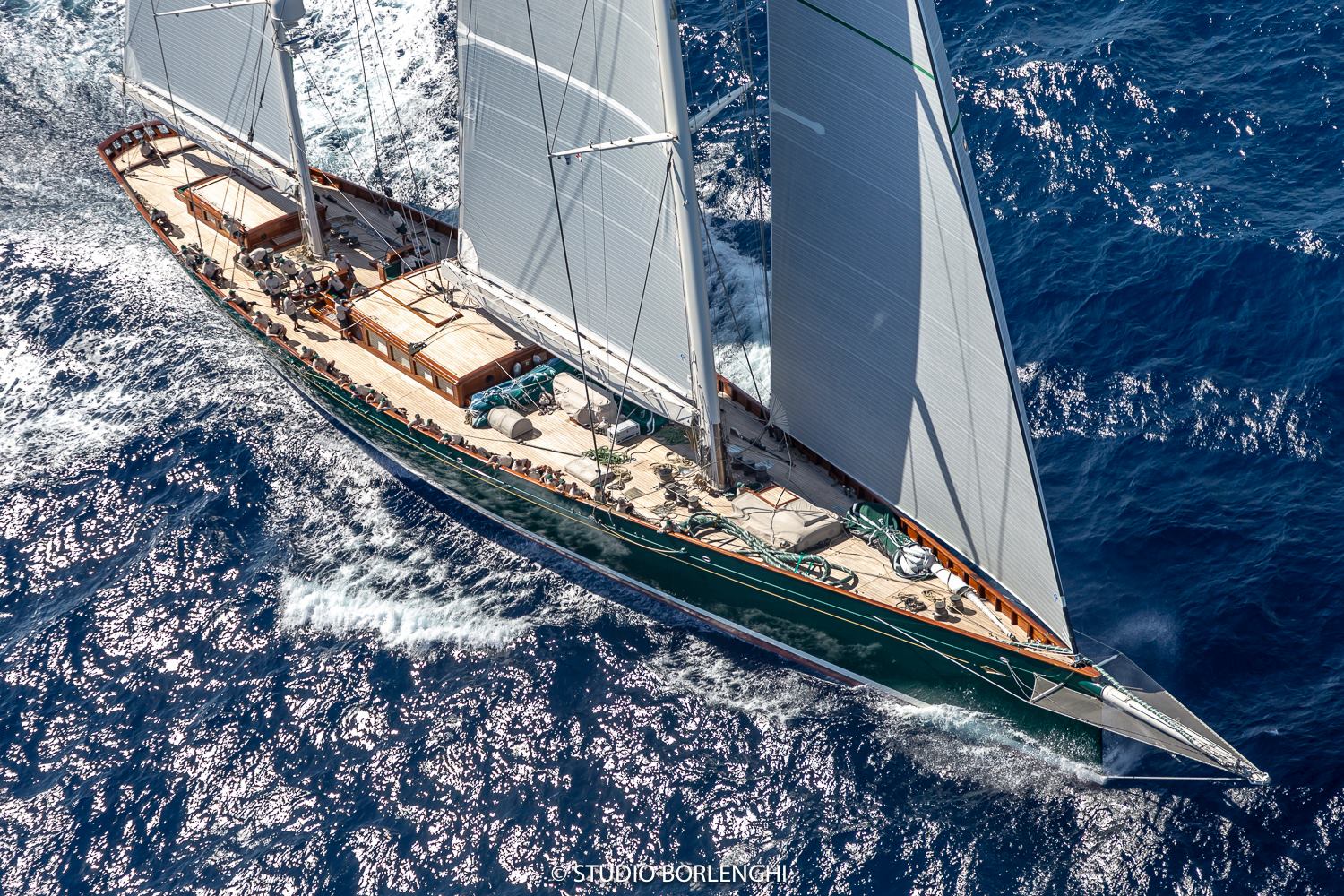
Hetairos 200’ Ketch Wins the St. Barths Bucket Overall. My Song Wins Final Race for 3rd in Class one point behind Hetairos.


My Song and Hetairos approaching finishing of Race 3 – St. Barths Bucket 2019
Gustavia (March 24, 2019) – On the final day of racing at the St. Barths Bucket, Reichel/Pugh Superyachts My Song and Hetairos took first and second place. Hetairos’ win in the first race of the regatta was a good omen as she went on to earn the overall Bucket for winning within the most competitive class. John Reichel raced on a different R/P design each day: Nilaya, Hetairos and Visione, with partner Jim Pugh sailing on the My Song. (more…)
3-16-2019
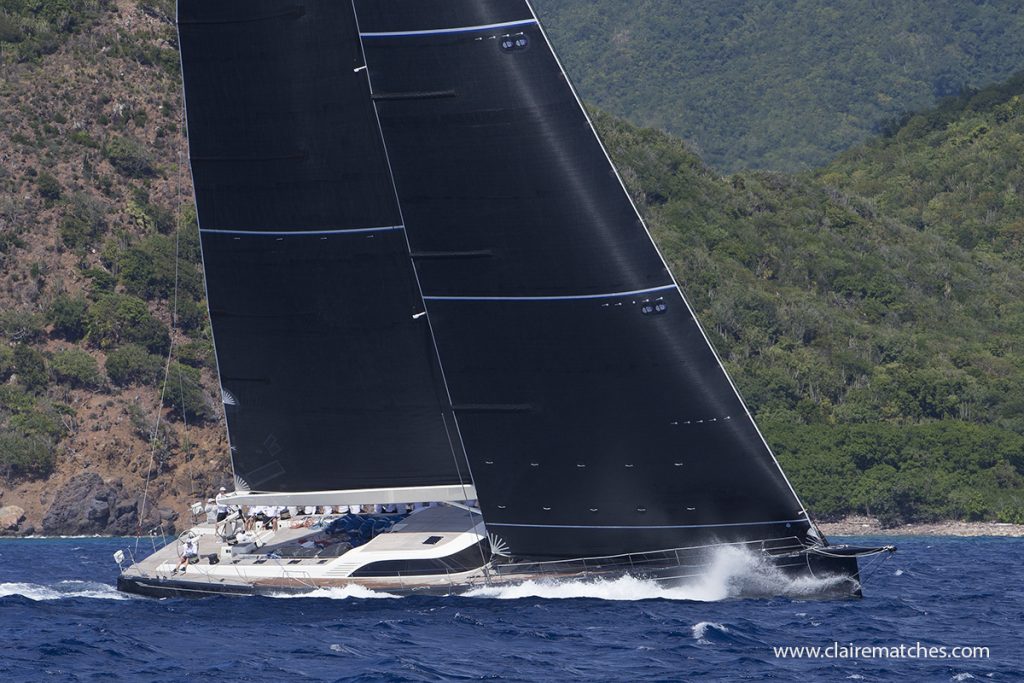
 Co-Founders Jim Pugh and John Reichel will be racing in the Bucket Regatta and look forward to seeing you in St. Barths March 21-24. To sit down for coffee or a cocktail during the event week please email: [email protected] or whatsapp Jim at: +1.619.200.2972. John can be reached at [email protected].
Co-Founders Jim Pugh and John Reichel will be racing in the Bucket Regatta and look forward to seeing you in St. Barths March 21-24. To sit down for coffee or a cocktail during the event week please email: [email protected] or whatsapp Jim at: +1.619.200.2972. John can be reached at [email protected].
The R/P Team wishes everyone a fun event and safe racing!
Click for more details about the four R/P superyachts racing and in production.

2-4-2019

 Antigua (February 3, 2019) – The ninth edition of the Superyacht Challenge Antigua kicked off the 2019 superyacht regatta season and featured four races for six 24 to 44m yachts all racing under the superyacht rule ORCsy.
Antigua (February 3, 2019) – The ninth edition of the Superyacht Challenge Antigua kicked off the 2019 superyacht regatta season and featured four races for six 24 to 44m yachts all racing under the superyacht rule ORCsy.
The Reichel/Pugh-designed 112’ Nilaya, helmed by owner Filip Balcaen, took 1st place in Class C: Corsairs. Nilaya was built by Baltic Yachts and launched in 2010. (more…)
12-30-2018
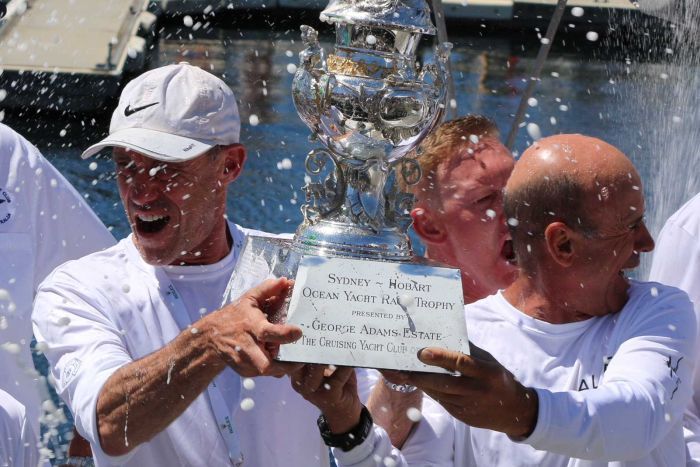
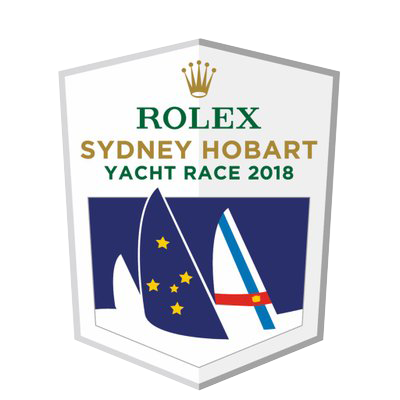 Hobart, Tasmania (December 30, 2018) – Phillip Turner’s Alive representing Derwent Sailing Squadron Inc has won the double for the 2018 Rolex Rolex Sydney Hobart. Winning the George Adams Tattersalls Cup for Overall Winner on IRC and the Charleston Trophy for Overall Winner on ORCi. Alive’s Navigator Wouter Verbraak has won the Bill Owen Memorial Trophy – for the navigator of the overall winner on handicap and the City of Hobart Trophy – for the Navigator of the first Tasmanian yacht on handicap. Reichel/Pugh Yacht Design have won the Alan Payne Memorial Trophy – for the designer of the overall winner on handicap.
Hobart, Tasmania (December 30, 2018) – Phillip Turner’s Alive representing Derwent Sailing Squadron Inc has won the double for the 2018 Rolex Rolex Sydney Hobart. Winning the George Adams Tattersalls Cup for Overall Winner on IRC and the Charleston Trophy for Overall Winner on ORCi. Alive’s Navigator Wouter Verbraak has won the Bill Owen Memorial Trophy – for the navigator of the overall winner on handicap and the City of Hobart Trophy – for the Navigator of the first Tasmanian yacht on handicap. Reichel/Pugh Yacht Design have won the Alan Payne Memorial Trophy – for the designer of the overall winner on handicap.
(more…)
12-28-2018
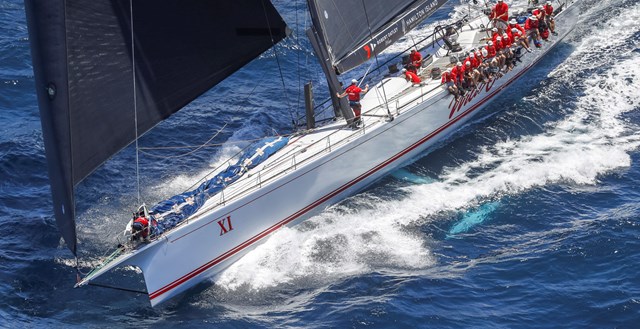
 Hobart, Tasmania (December 28, 2018) – The Reichel/Pugh-designed Wild Oats XI surges to victory to take her 9th Line Honors win in the 2018 Rolex Sydney-Hobart Race.
Hobart, Tasmania (December 28, 2018) – The Reichel/Pugh-designed Wild Oats XI surges to victory to take her 9th Line Honors win in the 2018 Rolex Sydney-Hobart Race.
Three years of trauma and heartache for the Wild Oats XI family has ended, after a premature retirement from the 2015 race with a torn mainsail, followed by Bob Oatley’s death in January 2016 and another race retirement in 2016 due to hydraulic ram issues, and then the much publicized 2017 race when Wild Oats XI was penalized one hour after an incident with Comanche and lost her line honors crown and a new race record to Comanche. Val Oatley described Wild Oats XI 2018 Rolex Sydney Hobart line honors victory perfectly alongside the dock in Hobart this morning: “Three years of misery to this moment,” and you could not wipe the smile from her face or that of her sons Sandy and Ian, as they waited for their Supermaxi to moor alongside the pier. Wild Oat’s skipper Mark ‘Ricko’ Richards handed over the helm to the Late Bob Oatley’s grandson, Daniel (Ian Oatley’s son, on his third Sydney Hobart on the family yacht) on the final leg to the finish. It was a blissful moment for the Oatley family and their supporters as their silver Supermaxi crossed the Hobart finish line at 08:07:21 on Friday, 28 December. (more…)
12-4-2018
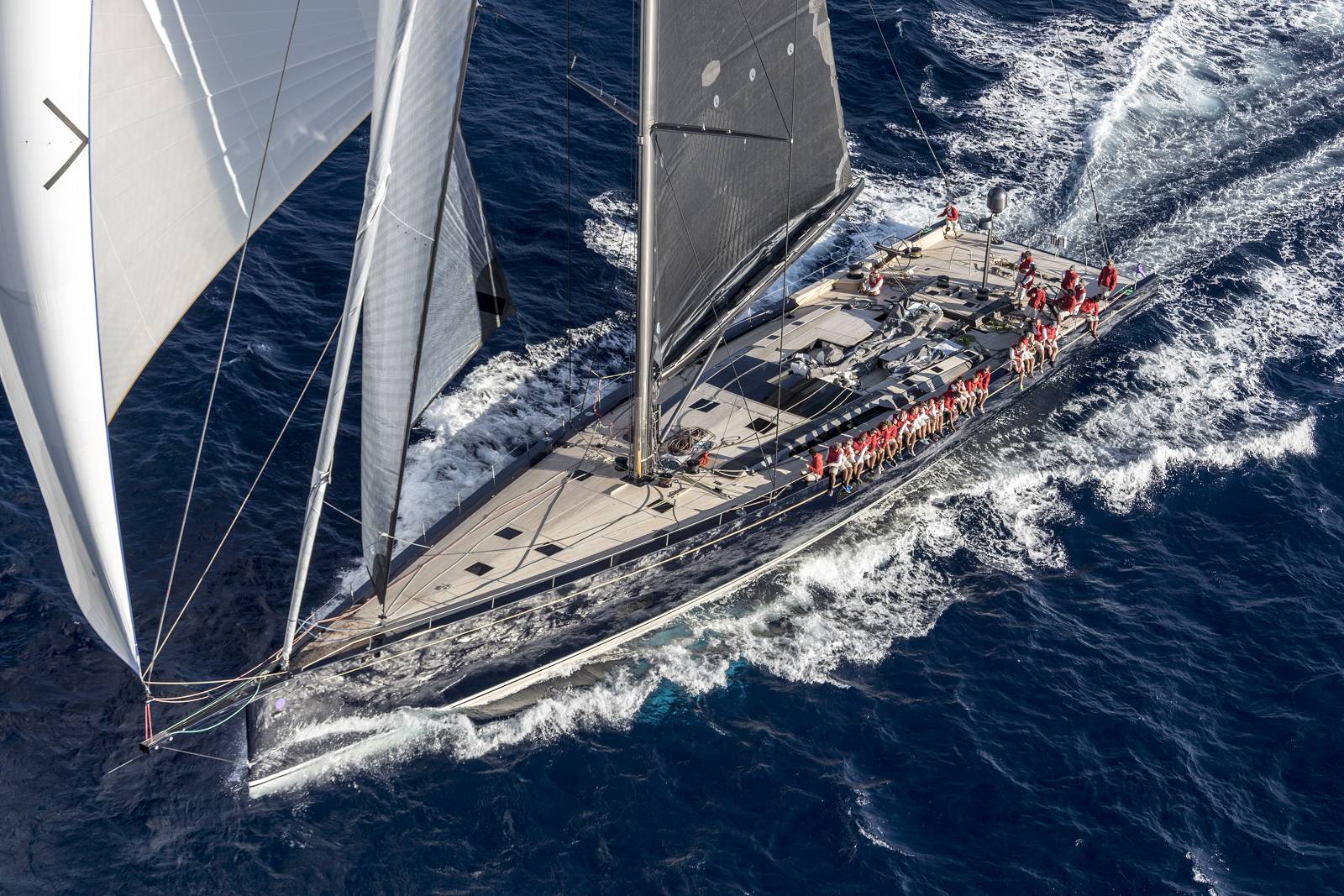
Pier Luigi Loro Piana’s 130′ Supermaxi My Song finished the 2018 RORC Transatlantic Race on December 4th at 17:47:11 UTC taking Monohull Line Honours. The Baltic 130 owned by Pier Luigi Loro Piana, a member of the International Maxi Association (IMA), has also set a new Monohull Race Record after completing the 3,000 mile race between Lanzarote and Grenada in an elapsed time of 10 days 5 hrs 47 mins 11 secs, shaving 1hr 19mins 48 secs off the previous monohull race record set in the 2015 race by Jean-Paul Riviere’s French Finot-Conq 100, Nomad IV.
-

-
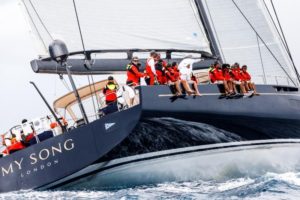
My Song, delivered in 2016 and features a rotating retractable propulsion system, high-performance keel and other innovative features. Her naval architecture and engineering is by Reichel/Pugh, Interior, deck design by Nauta Yachts of Milan, and she was built by Baltic Yachts with project management by Nigel Ingram, MCM. Following World Superyacht Awards for Best Sailing Yacht between 30m and 39.9m and the Showboats Design Awards in which she was voted Most Innovative Sailing Yacht and took the Best Exterior Design and Styling award, she also won the International Superyacht Society’s 2017 award for the Best Sailing Yacht between 24m and 40m. (more…)
11-27-2018
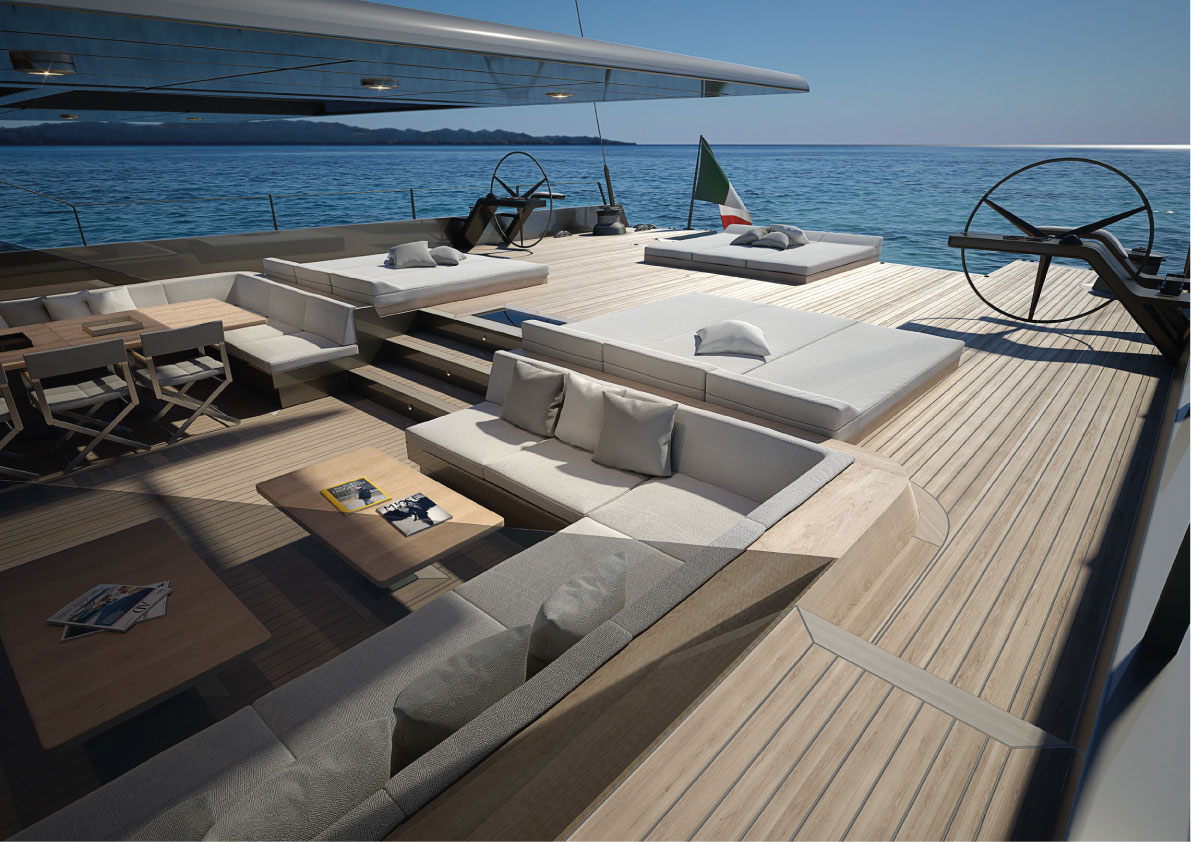
PERINI NAVI ANNOUNCES THE SALE OF THE SECOND 42-METER E-VOLUTION – Naval Architecture by Reichel/Pugh Yacht Design
Perini Navi, world leader in the design and construction of sailing and motor ships, announces the sale of the second 42 meter S / Y line of the E-volution line.
The new 42m S/Y, the first unit in the GTS series, has been sold to an expert European owner and will be delivered in spring 2021.
Based on the platform developed for the first 42-meter E-volution, with a concept and styling by Perini Navi and naval architecture by Reichel Pugh, this second unit combines aluminum and carbon to deliver superior performance. (more…)
10-15-2018

Trieste, Italy (October 14, 2018) – Warm congratulations goes out to the skipper and crew of the Reichel/Pugh-designed, canting keel 86’ Spirit of Portopiccolo, formerly the Morning Glory, as overall winner of the 50th Barcolana Regatta. This year there was a record 2,689 boats on the starting line. More stunning photos can be found in @studioborlenghi 50th Barcolana album.
(more…)
9-23-2018

The 28th edition of the Monaco Yacht Show starts this Wednesday and runs through four days showcasing the top superyacht builders, suppliers, brokerage firms and yacht designers.
Reichel/Pugh Yacht Design will be represented at this year’s show by the award winning 130’ My Song.
(more…)
8-28-2018

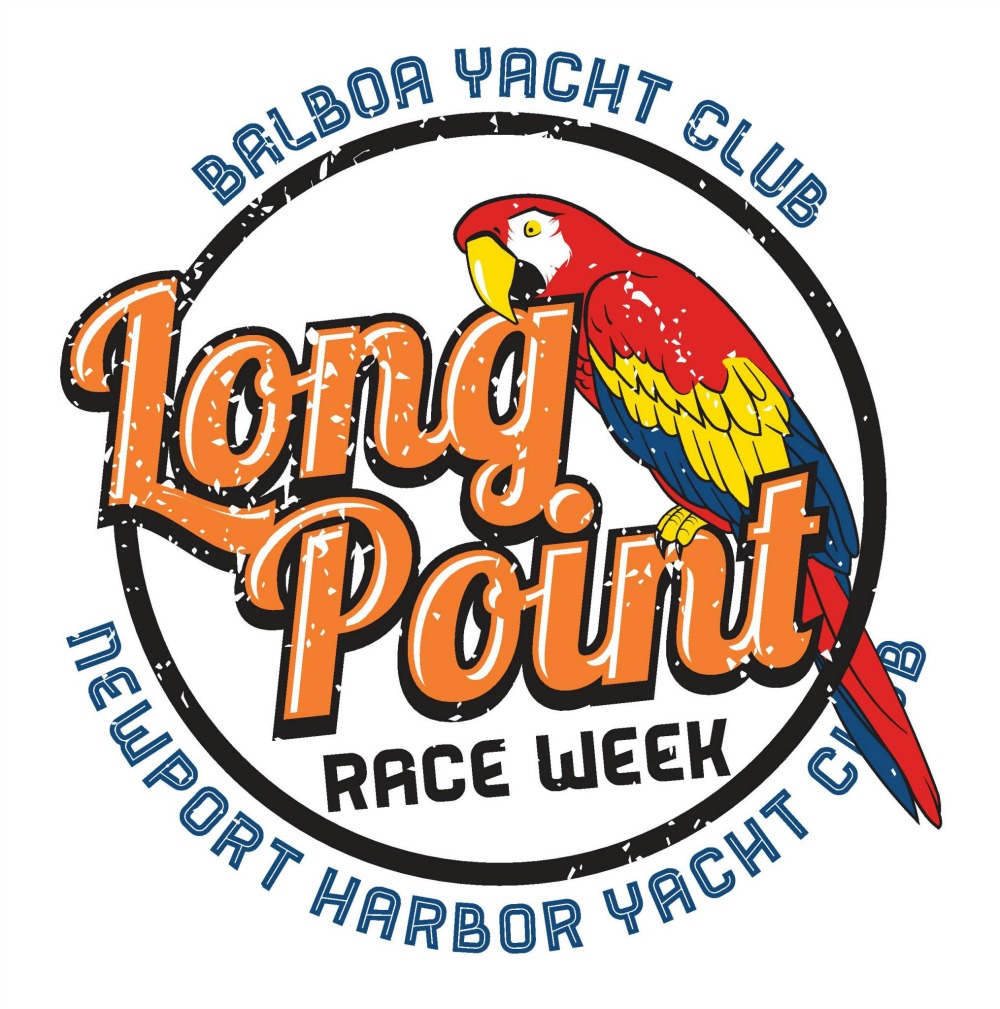 California (August 24-26, 2018) – Congratulations go out to Dr. Hasso Plattner and his team for the overall win (and PHRF A division win) for the second year in a row at the 2018 Long Point Race Week aboard their Reichel/Pugh-designed and engineered / Baltic-built 68’ Performance Cruiser Claude 2. In addition, Alec Oberschmidt’s Reichel/Pugh-designed 50′ Staghound won the PHRF B division! (more…)
California (August 24-26, 2018) – Congratulations go out to Dr. Hasso Plattner and his team for the overall win (and PHRF A division win) for the second year in a row at the 2018 Long Point Race Week aboard their Reichel/Pugh-designed and engineered / Baltic-built 68’ Performance Cruiser Claude 2. In addition, Alec Oberschmidt’s Reichel/Pugh-designed 50′ Staghound won the PHRF B division! (more…)
7-31-2018
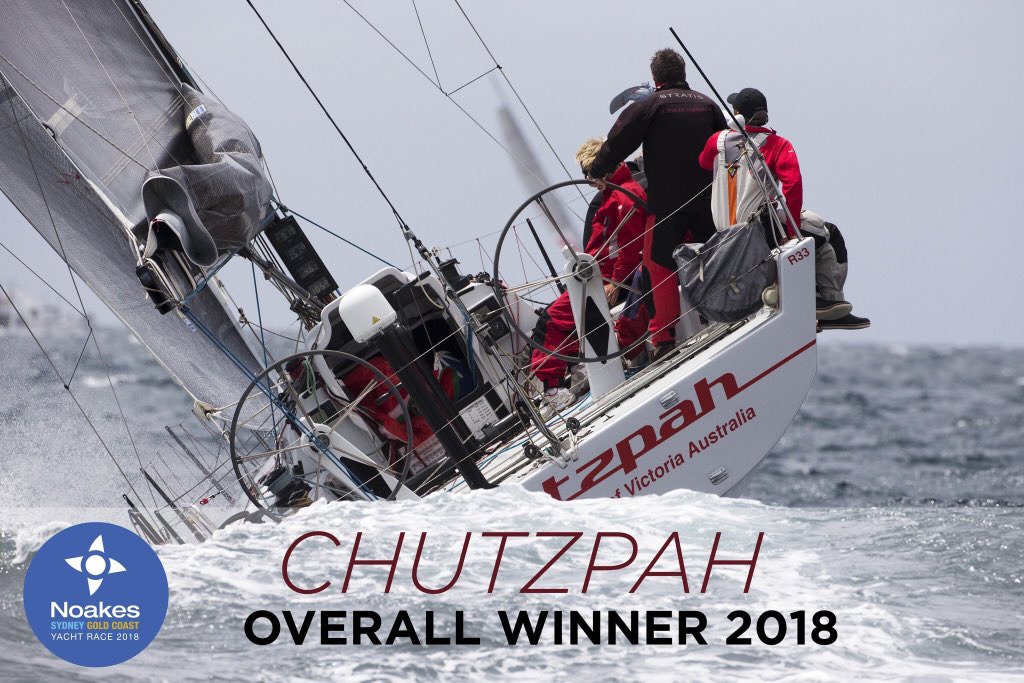
Cruising Yacht Club of Australia/Southport Yacht Club, Sydney-Australia, 384nm (July 28th – 31, 2018) – Congratulations to the owners and crews of the Reichel/Pugh designed yachts competing in the 2018 Noakes Sydney Gold Coast Race Offshore Classic.
- Reichel/Pugh 40’ Chutzpah – Overall Winner
- Reichel/Pugh 100’ Black Jack – Line Honours
- Reichel/Pugh 100’ Wild Oats XI – 2nd on Elapsed Time
- Reichel/Pugh 63’ Voodoo
- Reichel/Pugh 51’ Primitive Cool
- Reichel/Pugh Marten 49’ Yarrandi
(more…)
6-19-2018
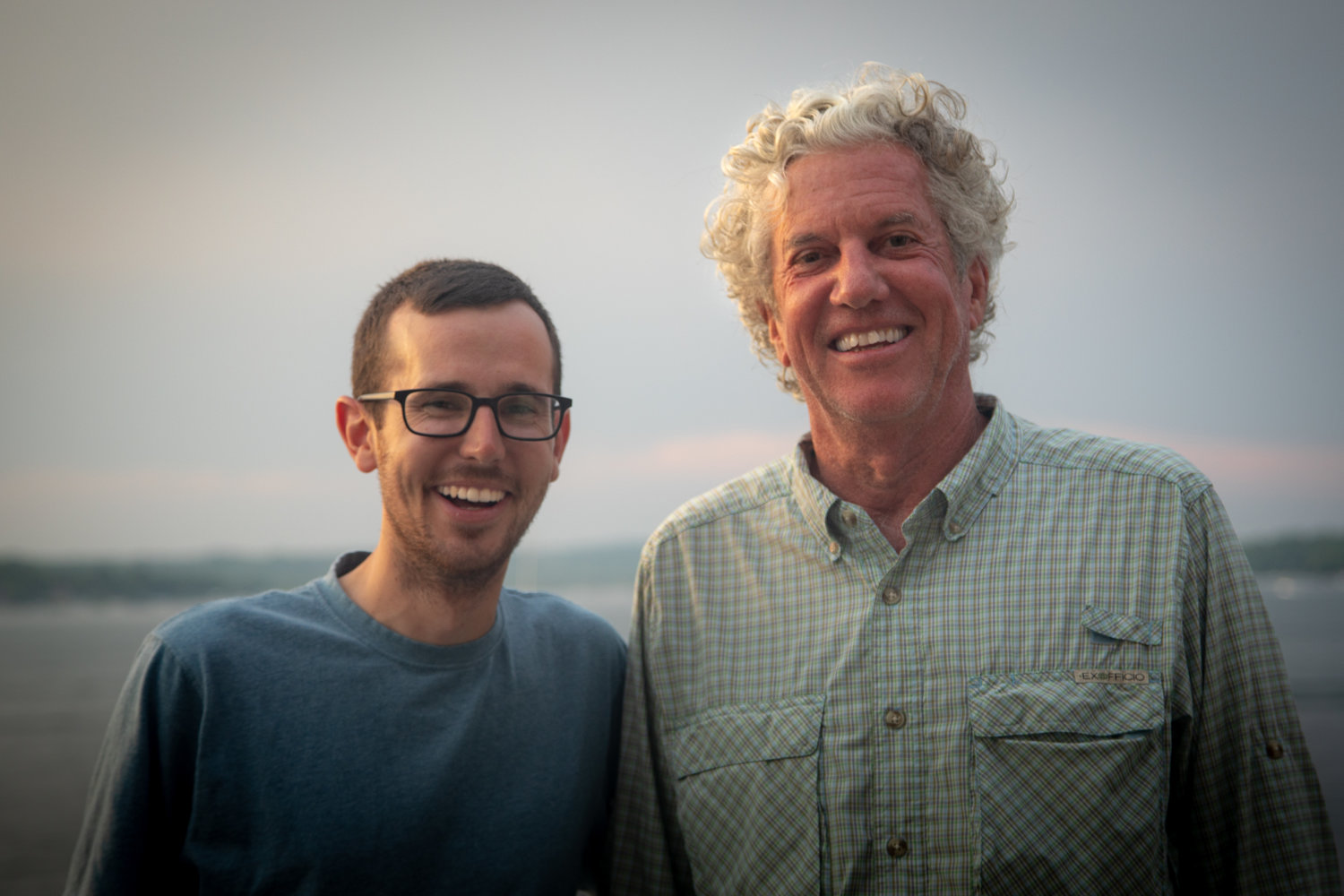
Geneva Lake, Wisconsin (June 17, 2018) – Reichel/Pugh Founder John Reichel and Naval Architect and Structural Engineer David Oliver were all smiles at the inaugural Melges 14 Nationals held held June 15-17. The event helped to continue to solidify the class as the premier high-performance one-design racing boat just three years after its introduction. Already honored as Sailing World’s 2016 Boat of the Year – Best Dinghy the class attracted over 30 entrants from around the country including Olympians and Olympic hopefuls. (more…)
6-19-2018

One of the newest Reichel/Pugh projects is a custom 68′ Fast Performance Cruiser to be built by Baltic Yachts in Finland.
The yacht is designed for short-handed long-distance offshore cruising with the ability to very comfortably overnight at weekend destinations. While comfort and aesthetics are the priority, the owner is also focused on a performance design that can excel on the race course. The result is a hi-tech composite structure with a gorgeous interior that will no-doubt provide a highly-rewarding sailing experience.
Reichel/Pugh President Jim Pugh explains that, “The all-carbon composite, fixed keel, twin-rudder sloop with a powerful square-top main ensure exceptional performance on the race course. A captive winch-controlled mainsheet and powered winches provide safe and easy sail handling while cruising with a pin head main and furling jib.” (more…)
6-14-2018
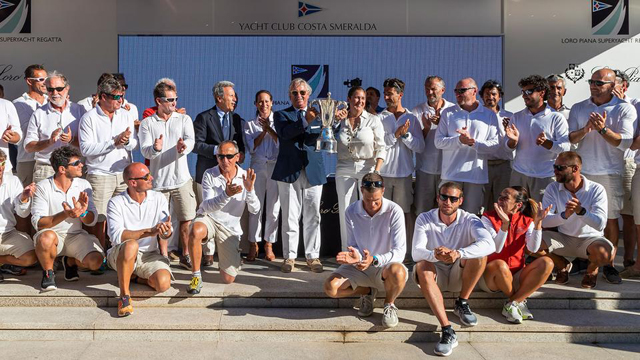
Porto Cervo (June 13, 2018) – The 130’ MY SONG built by Baltic, designed by Reichel Pugh and Nauta, achieved three first places in three races claiming first overall in Class “A”. MY SONG also claimed the Silver Jubilee Trophy, reserved for the top superyacht from both classes over 100 feet long, and the award for the top placed yacht owned by a YCCS member. (more…)
6-10-2018

Victoria, BC (June 9, 2018) – Reichel/Pugh wishes to congratulate all competitors at the 2018 Melges 24 Worlds!
Now in its 25th year, the class still boasts one of the most competitive fleets in the world. This year the new Victoria International Marina was host to a fleet of 41 teams from five nations, racing a 10-race World Championship series.
Italian Andrea Racchelli’s Altea and his crew Filippo Togni, Gaudenzio Bomni, Matteo Ramian, Michele Gregoratto are the 2018 Melges World Champions. Alan Field’s WTF took silver, followed by Bruce Ayres’ Monsoon, both from the United States. (more…)
4-2-2018
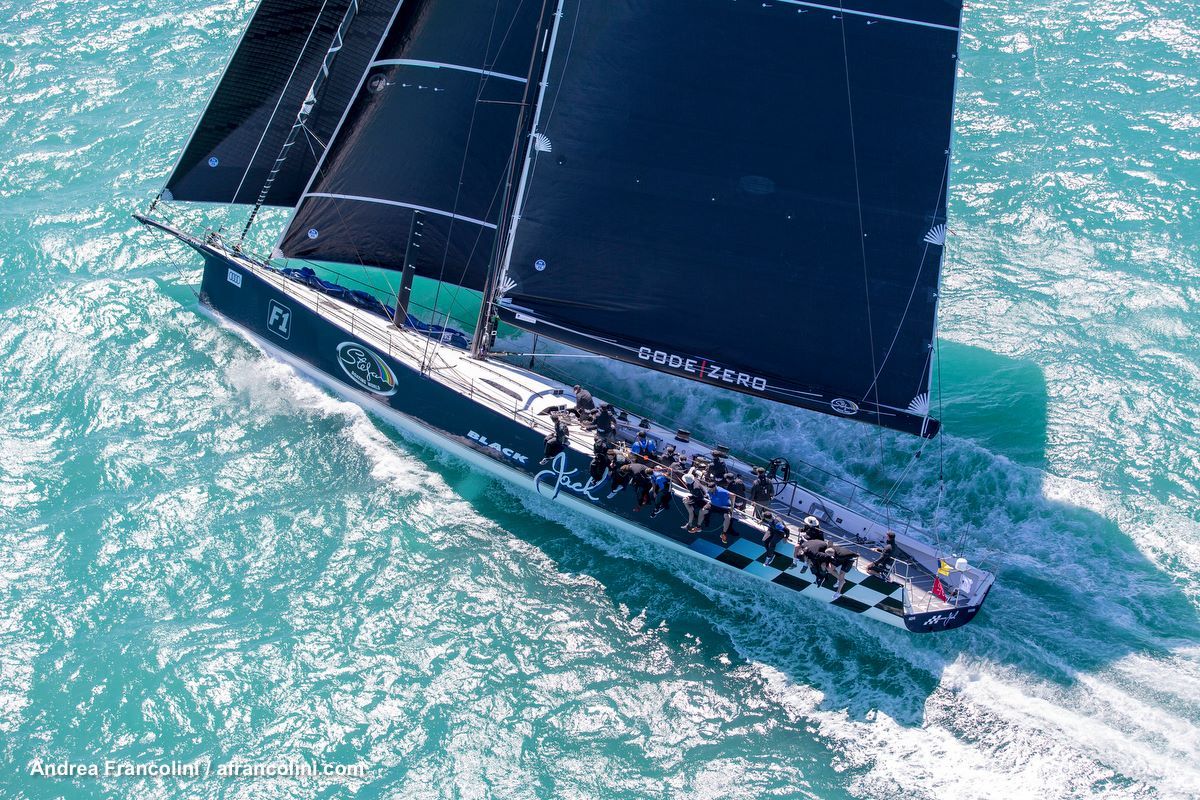
 Queensland, AUS (March 31, 2018) – Congratulations to Black Jack Yachting (Reichel/Pugh 100) for slicing 3.5 hours off the previous record by setting a new course time of 00:16:53:57 in the historic 70th edition of the race. The Brisbane to Gladstone is a 308nm race held annually on Good Friday and is hosted by the Queensland Cruising Yacht Club. The sixty-nine-year history of the race has made it one of Australia’s flagship offshore races. It is an icon of Queensland and the highest profile Easter Weekend sporting event setting sail from Moreton Bay on Good Friday annually. (more…)
Queensland, AUS (March 31, 2018) – Congratulations to Black Jack Yachting (Reichel/Pugh 100) for slicing 3.5 hours off the previous record by setting a new course time of 00:16:53:57 in the historic 70th edition of the race. The Brisbane to Gladstone is a 308nm race held annually on Good Friday and is hosted by the Queensland Cruising Yacht Club. The sixty-nine-year history of the race has made it one of Australia’s flagship offshore races. It is an icon of Queensland and the highest profile Easter Weekend sporting event setting sail from Moreton Bay on Good Friday annually. (more…)
3-21-2018

St Barths (March 20, 2018) – This past weekend, 26 of the world’s finest sailing yachts gathered for the renowned three-day St Barths Bucket Regatta. Reichel/Pugh-designed 112′ Nilaya won the most competitive Les Gazelles des Mers class and was awarded the overall prize; the Bucket. R/P’s iconic 147’ Visione also built by Baltic took second and also won the All-Star Crew Award following nominations from each yacht for the most professional service, the best camaraderie, teamwork, and respect. As the regatta organizers said: “This is the yacht that everyone wants to work on!” Visione was the overall winner of the Bucket in 2015. (more…)
12-27-2017

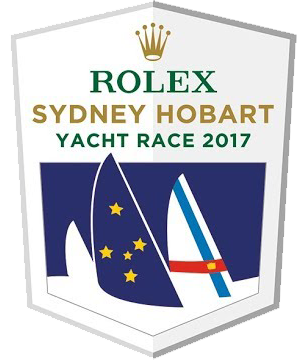 Hobart, Tasmania (December 28, 2017) – Congratulations to Jim Cooney and crew of Comanche for being awarded line honors and the new course record in the 2017 Rolex Sydney Hobart Race. It was a tremendous battle between Comanche and Wild Oats XI. We are hopeful to see many more in futures races. We also would like to congratulate and cheer on all the crews who battled for the Tattersall Cup. Without these competitors the race would not be the spectacle that it is! Reichel/Pugh competitor’s included: the Oatley’s RP 100′ Wild Oats XI and RP 66′ Wild Oats X, Peter Harburg’s RP 100′ Black Jack, Bruce Taylor’s RP 40′ Chutzpah, and Tony Walton’s RP 46′ Hartbreaker.
Hobart, Tasmania (December 28, 2017) – Congratulations to Jim Cooney and crew of Comanche for being awarded line honors and the new course record in the 2017 Rolex Sydney Hobart Race. It was a tremendous battle between Comanche and Wild Oats XI. We are hopeful to see many more in futures races. We also would like to congratulate and cheer on all the crews who battled for the Tattersall Cup. Without these competitors the race would not be the spectacle that it is! Reichel/Pugh competitor’s included: the Oatley’s RP 100′ Wild Oats XI and RP 66′ Wild Oats X, Peter Harburg’s RP 100′ Black Jack, Bruce Taylor’s RP 40′ Chutzpah, and Tony Walton’s RP 46′ Hartbreaker.
Hobart, Tasmania (December 27, 2017) – Late Thursday evening, the 12-year-old Reichel/Pugh-designed 100′ Wild Oats X1 took line honors for the ninth time since launching in 2005. Wild Oats achievement was quite remarkable, having trailed Jim Cooney’s much newer Comanche much of the race they found plenty of speed in the windy downwind conditions and in the light air up Tasmania’s River Derwent. Wild Oats XI smashed last year’s record of one day 13hrs 31mins 20secs by after passing Comanche and crossing the Castray Esplanade finish line 26 minutes and 24 seconds ahead, in the new time of one day 8hrs 48mins 50secs, taking 4hrs 42mins 30secs off Anthony Bell’s Perpetual LOYAL’s record. This is a record ninth line honours for Wild Oats and a third record as nobody in the history of the race has achieved this honour before.
VIDEO | Rolex Sydney Hobart Yacht Race 2017 – Downwind Class
(more…)
 by Tony Beale, Reichel/Pugh Yacht Design, San Diego for August 2016 Seahorse Magazine
by Tony Beale, Reichel/Pugh Yacht Design, San Diego for August 2016 Seahorse Magazine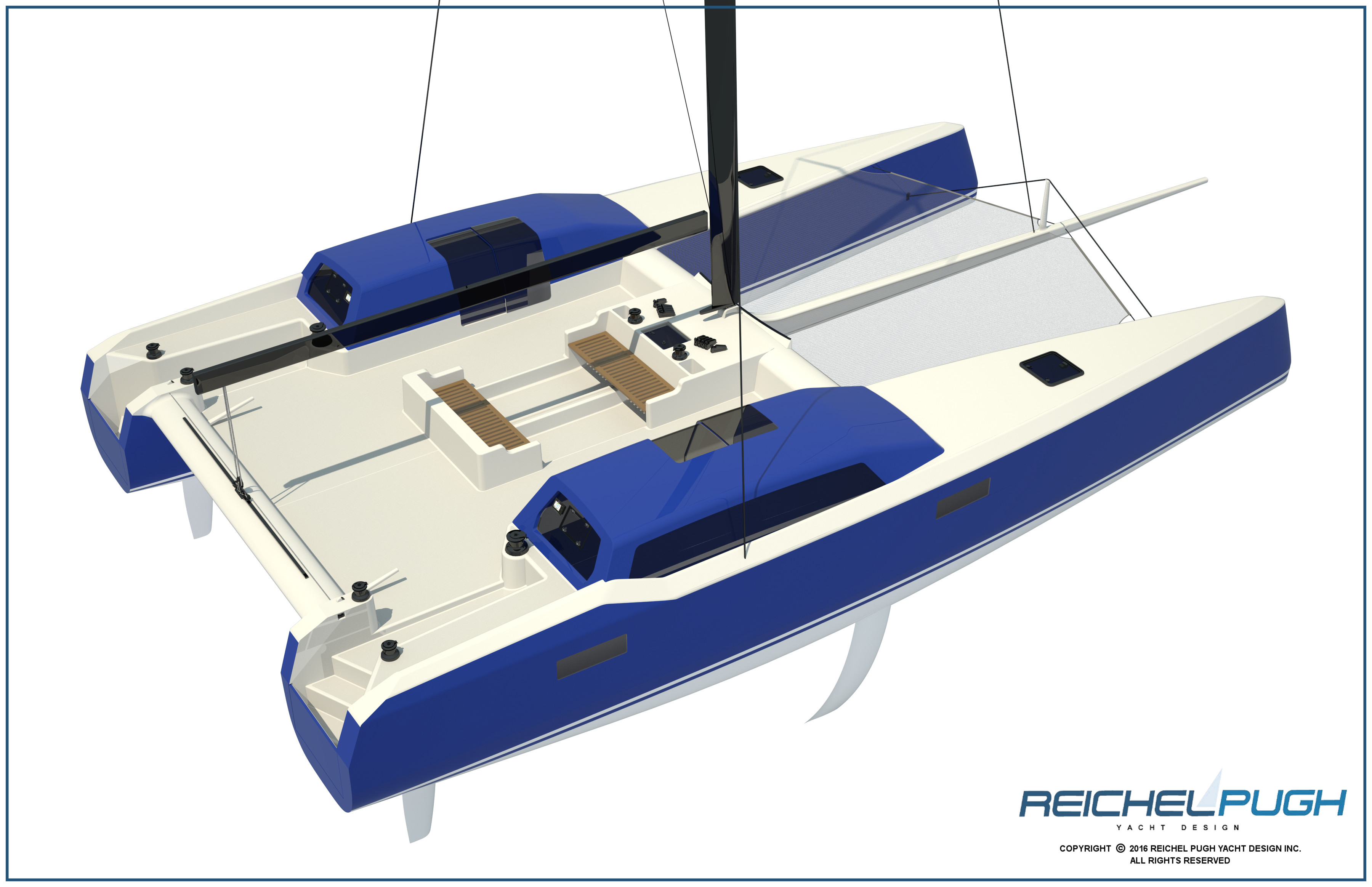
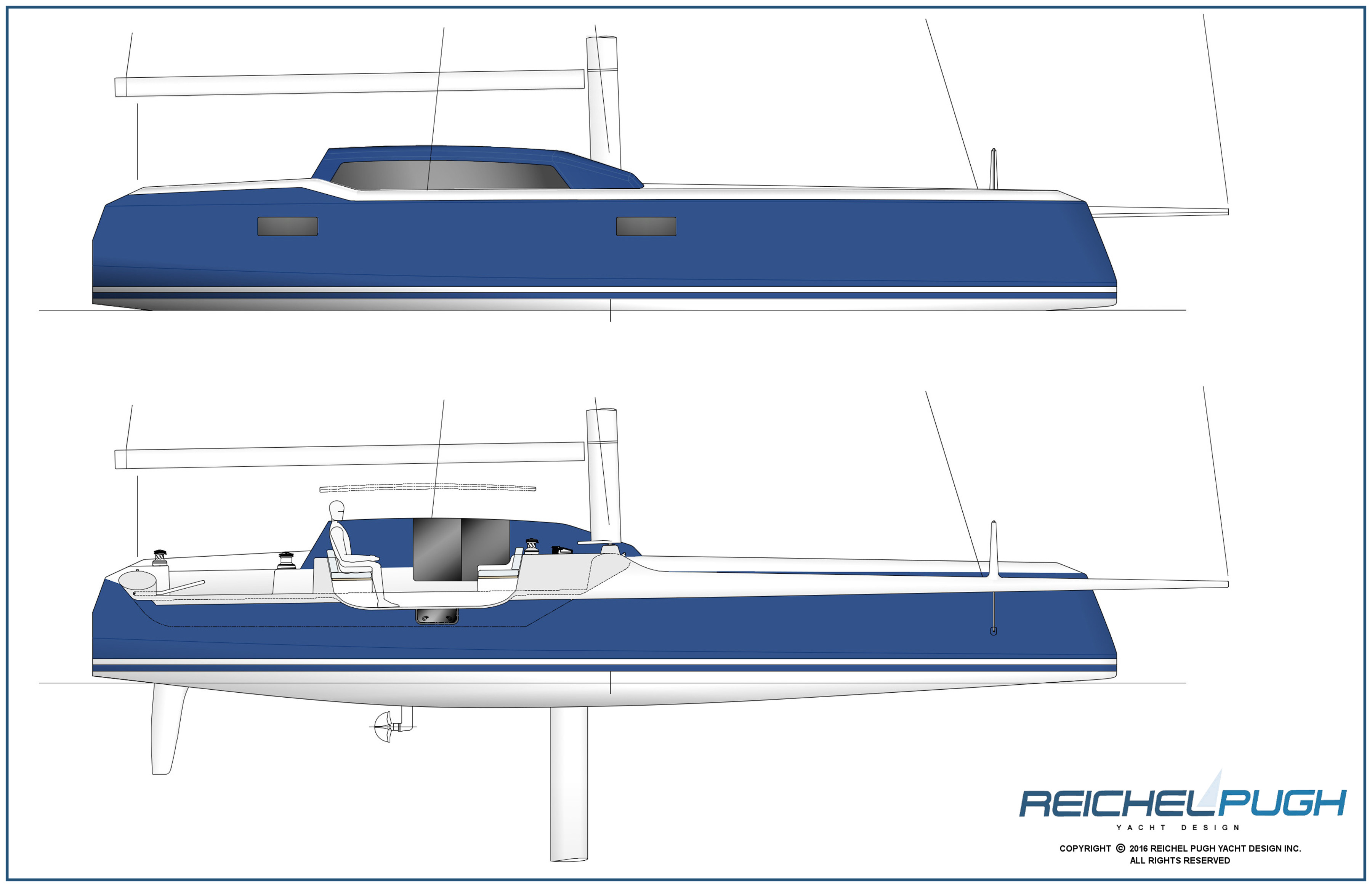
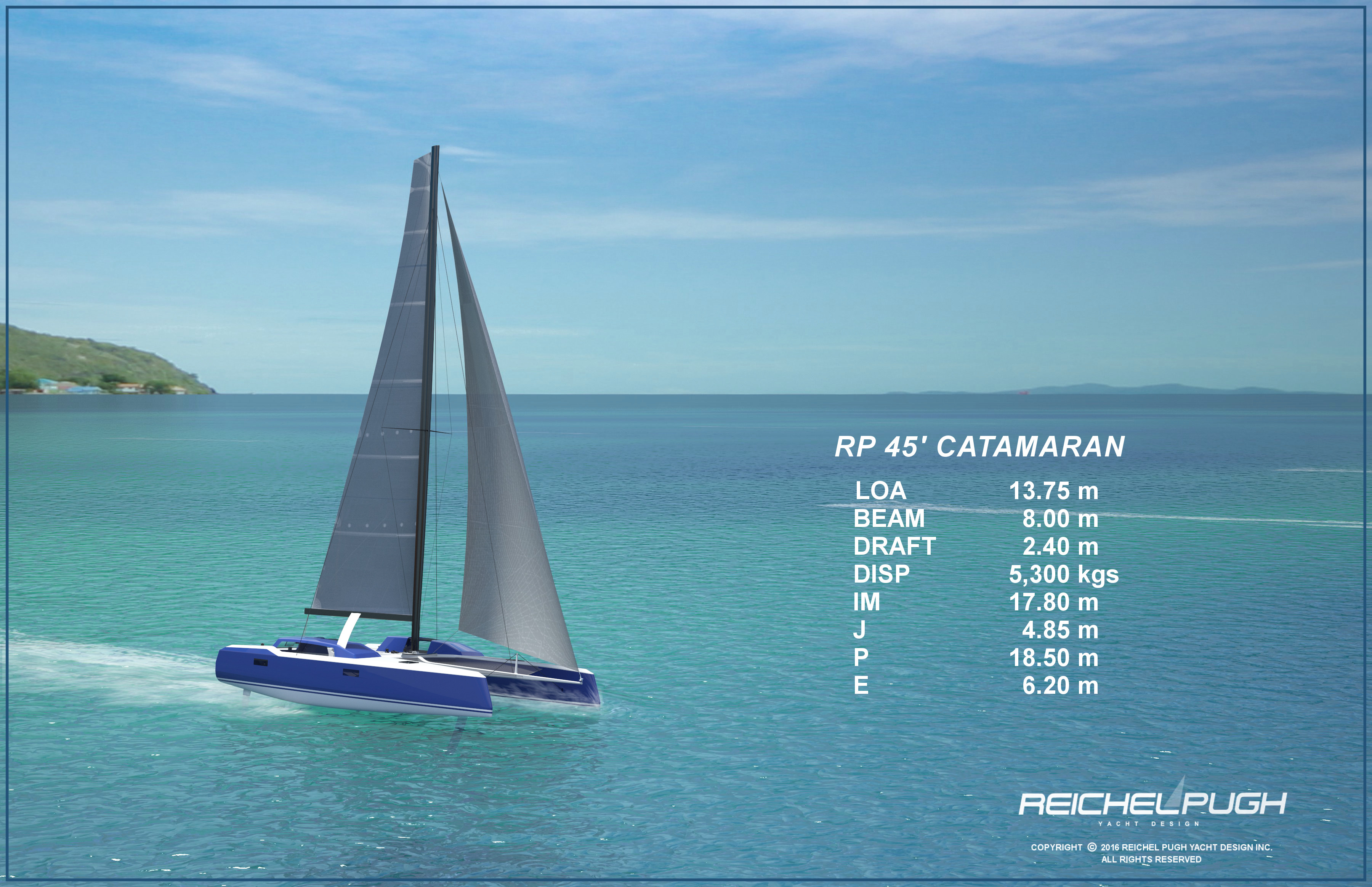

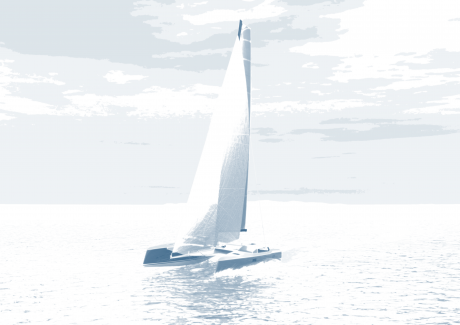


 Newport Beach, CA (August 25, 2019) – Congratulations to Alec Oberschmidt and his team for the overall win (and B division win for the third year in a row) at the 2019 Long Point Race Week aboard their Reichel/Pugh-designed 50’ racer Staghound. David Clark’s ULDB 70 Grand Illusion with Reichel/Pugh-designed keel and rudder appendages was 2nd in ORR Division. Grand Illusion won the Transpac overall in 2015.
Newport Beach, CA (August 25, 2019) – Congratulations to Alec Oberschmidt and his team for the overall win (and B division win for the third year in a row) at the 2019 Long Point Race Week aboard their Reichel/Pugh-designed 50’ racer Staghound. David Clark’s ULDB 70 Grand Illusion with Reichel/Pugh-designed keel and rudder appendages was 2nd in ORR Division. Grand Illusion won the Transpac overall in 2015. 
 Cowes, Isle of Wight (August 17, 2019) – Mark Rijkse’s Reichel/Pugh-designed GP42 42° South (ex-Seawonder 007) shone brightly at the 2019 COWES WEEK, scoring four bullets in six races to win Class IRC 0, winning the prestigious Brittania Cup and New York Yacht Club Challenge Cup in two of those races.
Cowes, Isle of Wight (August 17, 2019) – Mark Rijkse’s Reichel/Pugh-designed GP42 42° South (ex-Seawonder 007) shone brightly at the 2019 COWES WEEK, scoring four bullets in six races to win Class IRC 0, winning the prestigious Brittania Cup and New York Yacht Club Challenge Cup in two of those races. 
 A piece of Dr. Skip Sheldon’s legacy lives on as his 66’ racer-cruiser Zaraffa continues to win with the grateful U.S. Naval Academy Varsity Offshore Sailing Team.
A piece of Dr. Skip Sheldon’s legacy lives on as his 66’ racer-cruiser Zaraffa continues to win with the grateful U.S. Naval Academy Varsity Offshore Sailing Team.
 As the 50th Transpac kicks off this week Reichel/Pugh wishes all owners and crews a safe race, especially our very own Naval Architect and Structural Engineer David Oliver who is navigator aboard the 60’ Good Call.
As the 50th Transpac kicks off this week Reichel/Pugh wishes all owners and crews a safe race, especially our very own Naval Architect and Structural Engineer David Oliver who is navigator aboard the 60’ Good Call. Porto Cervo (June 8, 2019) – The 12th edition of the Loro Piana Superyacht Regatta was organized by the Yacht Club Costa Smeralda in the waters of Porto Cervo, Sardinia and hosted 20 boats ranging from 25 to 52 metres in length. Reichel/Pugh-designed 100’ Magic Carpet3, owned by YCCS member Sir Lindsay Owen-Jones, won Class “A” ahead of the 33-metre Inoui and the Wally 107 Open Season with a perfect scoreline across all three races. The Silver Jubilee Cup, assigned to the top yacht over 30 metres with an interior cruising set-up and in the division with the most competitors, also went to the WallyCento Magic Carpet3. Jim Pugh was apart of the racing team.
Porto Cervo (June 8, 2019) – The 12th edition of the Loro Piana Superyacht Regatta was organized by the Yacht Club Costa Smeralda in the waters of Porto Cervo, Sardinia and hosted 20 boats ranging from 25 to 52 metres in length. Reichel/Pugh-designed 100’ Magic Carpet3, owned by YCCS member Sir Lindsay Owen-Jones, won Class “A” ahead of the 33-metre Inoui and the Wally 107 Open Season with a perfect scoreline across all three races. The Silver Jubilee Cup, assigned to the top yacht over 30 metres with an interior cruising set-up and in the division with the most competitors, also went to the WallyCento Magic Carpet3. Jim Pugh was apart of the racing team.

 Ensenada, Mexico (April 28, 2019) – Congratulations to all competitors in the 72nd annual Newport to Ensenada (125nm). On the heels of its 2018 Sydney-Hobart victory, the Australian-based Reichel/Pugh 66’ Canting Keel Mini Maxi ALIVE (formerly Black Jack & Stark Raving Mad) earned the NOSA Trophy for overall best elapsed time, the Amigo Trophy awarded to a first-time skipper and the Lahaina Yacht Club Trophy for best elapsed time all PHRF. Congratulations to owner Phillip Turner, skipper Duncan Hine and the entire Alive Yachting team.
Ensenada, Mexico (April 28, 2019) – Congratulations to all competitors in the 72nd annual Newport to Ensenada (125nm). On the heels of its 2018 Sydney-Hobart victory, the Australian-based Reichel/Pugh 66’ Canting Keel Mini Maxi ALIVE (formerly Black Jack & Stark Raving Mad) earned the NOSA Trophy for overall best elapsed time, the Amigo Trophy awarded to a first-time skipper and the Lahaina Yacht Club Trophy for best elapsed time all PHRF. Congratulations to owner Phillip Turner, skipper Duncan Hine and the entire Alive Yachting team. 
 RP100 Black Jack is Winner of 2019 Brisbane to Gladstone Line Honors and Four Cities Cup for best performing yacht.
RP100 Black Jack is Winner of 2019 Brisbane to Gladstone Line Honors and Four Cities Cup for best performing yacht.
 St. Barths (April 21, 2019) — Launched in 2010, Les Voiles de St. Barth is an event created specifically to keep the long, colorful history of racing on the island vibrant — building on Loulou’s Regatta back in the 1970’s with its 100 sailboats to the Transat AG2R, the Route du Rose, and the St Barth Bucket Regatta. The 2019 regatta marked the 10th anniversary and fielded scores of teams across nine classes, despite the remaining traces of hurricane Irma, which ravaged the island in September 2017.
St. Barths (April 21, 2019) — Launched in 2010, Les Voiles de St. Barth is an event created specifically to keep the long, colorful history of racing on the island vibrant — building on Loulou’s Regatta back in the 1970’s with its 100 sailboats to the Transat AG2R, the Route du Rose, and the St Barth Bucket Regatta. The 2019 regatta marked the 10th anniversary and fielded scores of teams across nine classes, despite the remaining traces of hurricane Irma, which ravaged the island in September 2017.








 Antigua (February 3, 2019) – The ninth edition of the Superyacht Challenge Antigua kicked off the 2019 superyacht regatta season and featured four races for six 24 to 44m yachts all racing under the superyacht rule ORCsy.
Antigua (February 3, 2019) – The ninth edition of the Superyacht Challenge Antigua kicked off the 2019 superyacht regatta season and featured four races for six 24 to 44m yachts all racing under the superyacht rule ORCsy.
 Hobart, Tasmania (December 30, 2018) –
Hobart, Tasmania (December 30, 2018) – 







 California (August 24-26, 2018) – Congratulations go out to Dr. Hasso Plattner and his team for the overall win (and PHRF A division win) for the second year in a row at the 2018 Long Point Race Week aboard their Reichel/Pugh-designed and engineered / Baltic-built 68’ Performance Cruiser Claude 2. In addition, Alec Oberschmidt’s Reichel/Pugh-designed 50′ Staghound won the PHRF B division!
California (August 24-26, 2018) – Congratulations go out to Dr. Hasso Plattner and his team for the overall win (and PHRF A division win) for the second year in a row at the 2018 Long Point Race Week aboard their Reichel/Pugh-designed and engineered / Baltic-built 68’ Performance Cruiser Claude 2. In addition, Alec Oberschmidt’s Reichel/Pugh-designed 50′ Staghound won the PHRF B division! 





 Queensland, AUS (March 31, 2018) – Congratulations to
Queensland, AUS (March 31, 2018) – Congratulations to 

 Hobart, Tasmania (December 28, 2017) – Congratulations to Jim Cooney and crew of Comanche for being awarded line honors and the new course record in the 2017 Rolex Sydney Hobart Race. It was a tremendous battle between Comanche and Wild Oats XI. We are hopeful to see many more in futures races. We also would like to congratulate and cheer on all the crews who battled for the Tattersall Cup. Without these competitors the race would not be the spectacle that it is! Reichel/Pugh competitor’s included: the Oatley’s RP 100′ Wild Oats XI and RP 66′ Wild Oats X, Peter Harburg’s RP 100′ Black Jack, Bruce Taylor’s RP 40′ Chutzpah, and Tony Walton’s RP 46′ Hartbreaker.
Hobart, Tasmania (December 28, 2017) – Congratulations to Jim Cooney and crew of Comanche for being awarded line honors and the new course record in the 2017 Rolex Sydney Hobart Race. It was a tremendous battle between Comanche and Wild Oats XI. We are hopeful to see many more in futures races. We also would like to congratulate and cheer on all the crews who battled for the Tattersall Cup. Without these competitors the race would not be the spectacle that it is! Reichel/Pugh competitor’s included: the Oatley’s RP 100′ Wild Oats XI and RP 66′ Wild Oats X, Peter Harburg’s RP 100′ Black Jack, Bruce Taylor’s RP 40′ Chutzpah, and Tony Walton’s RP 46′ Hartbreaker.